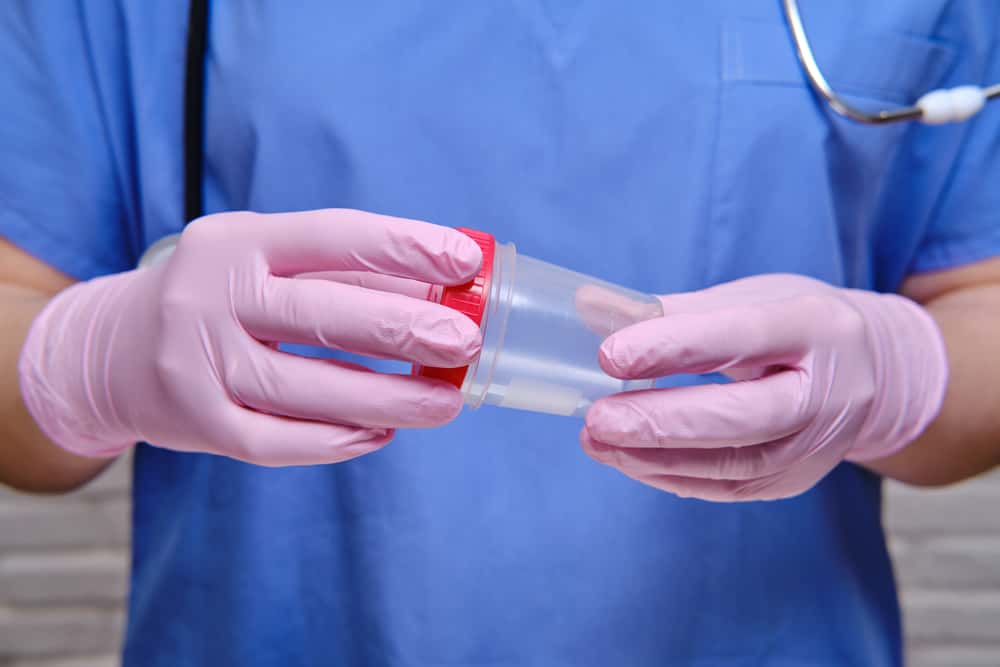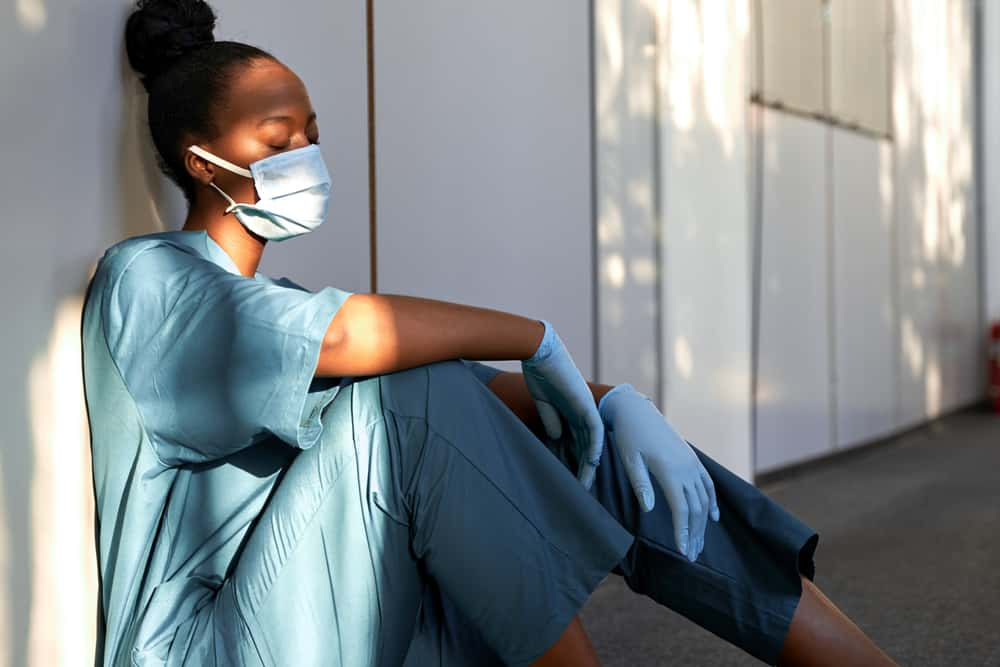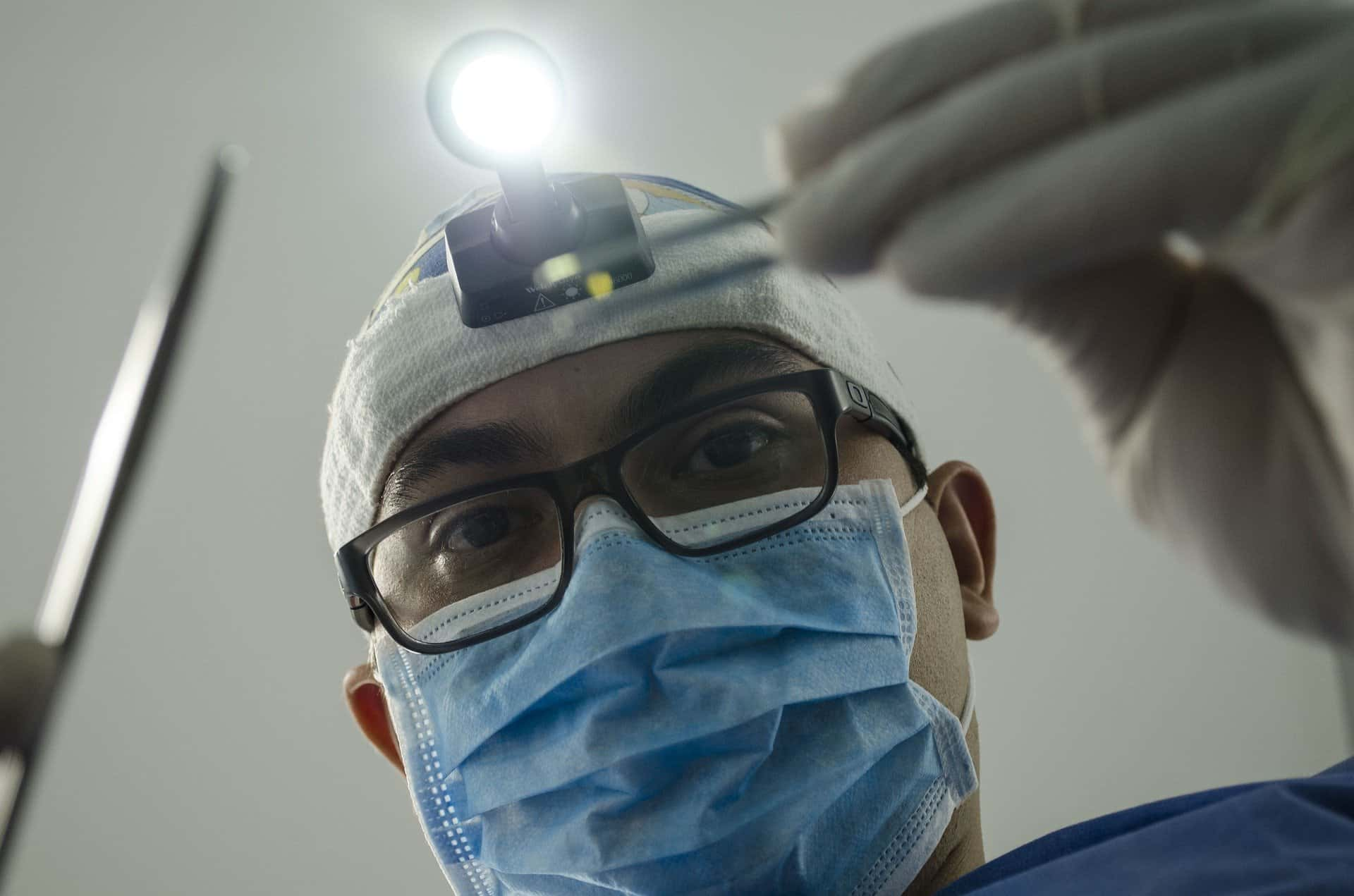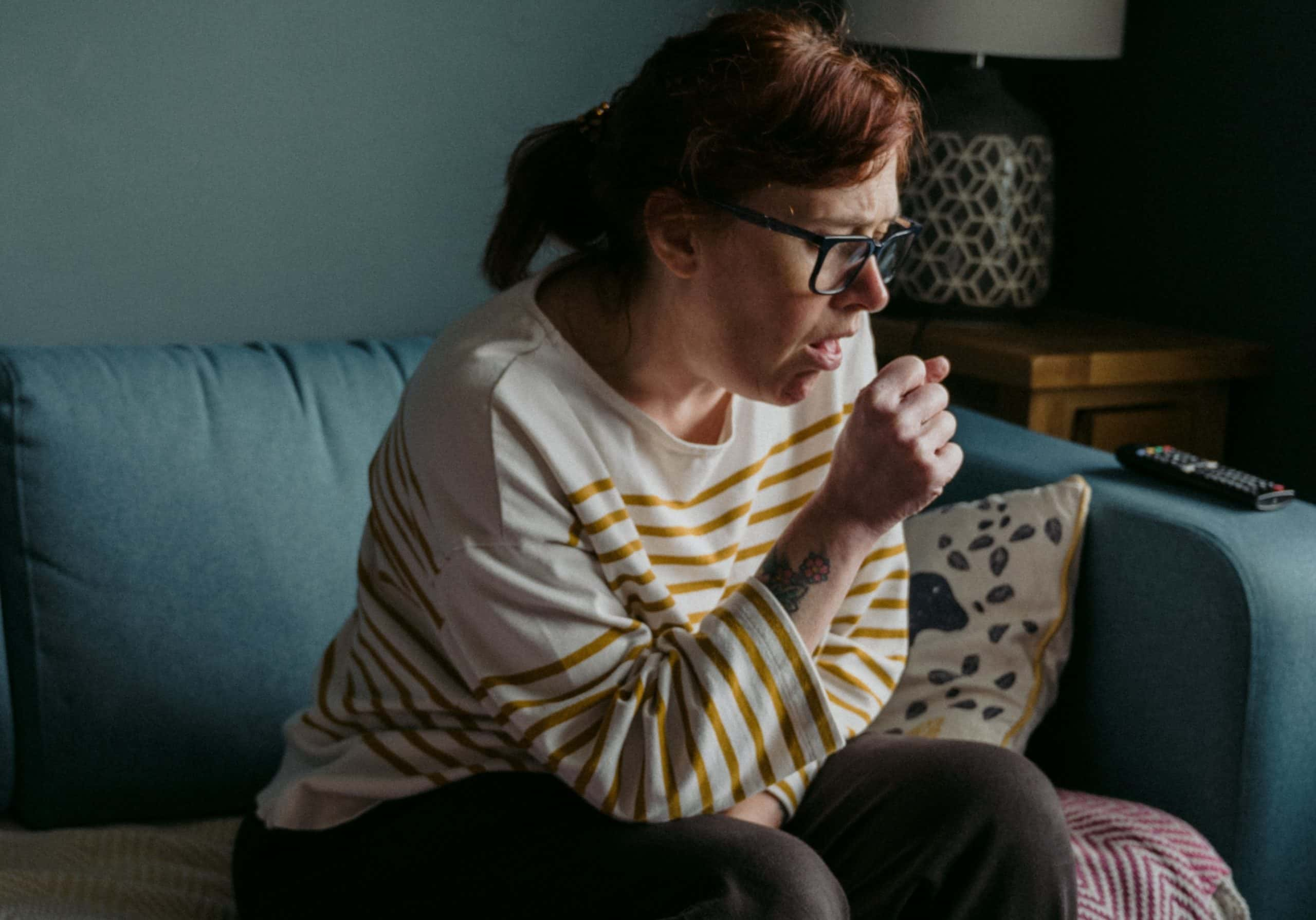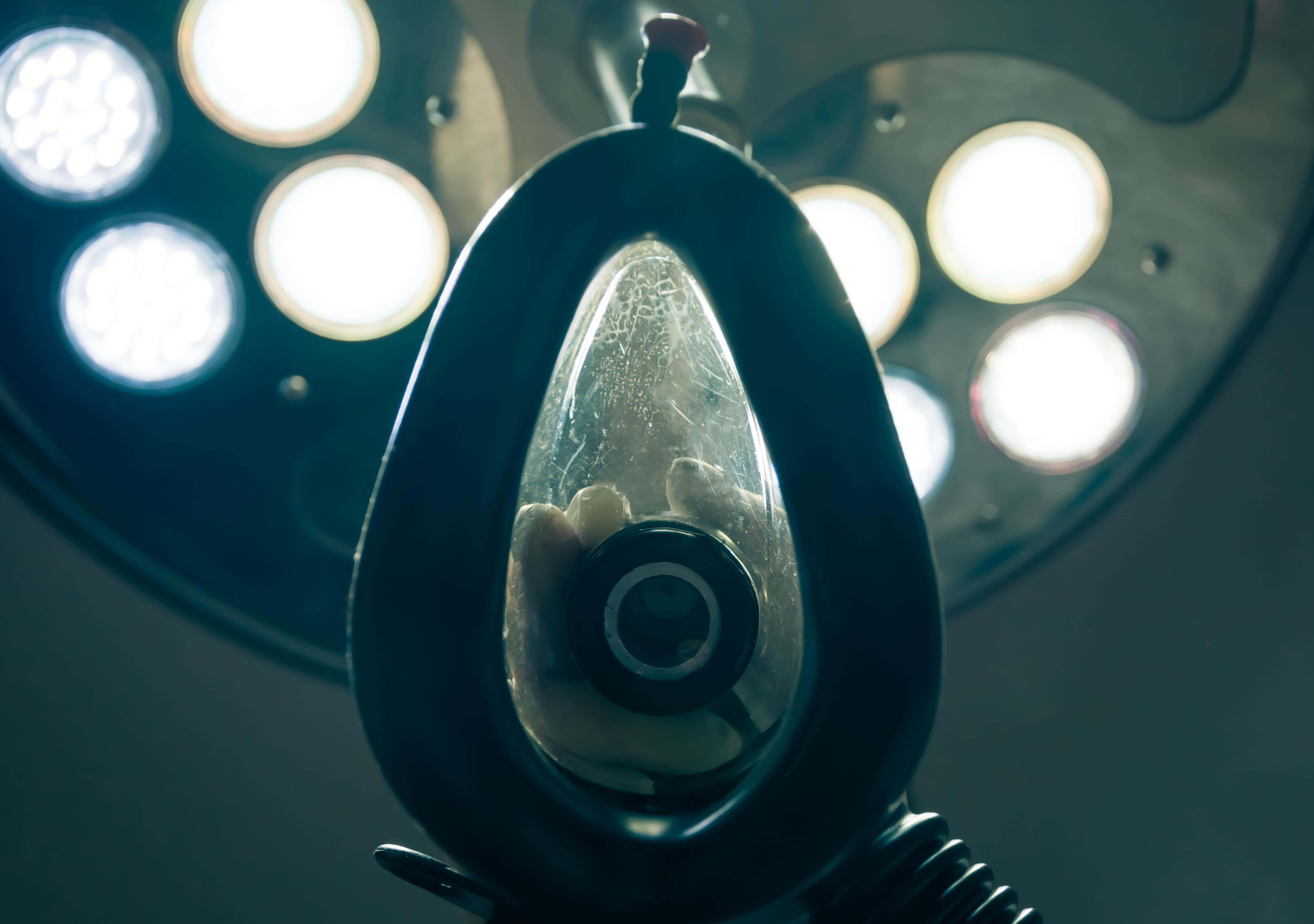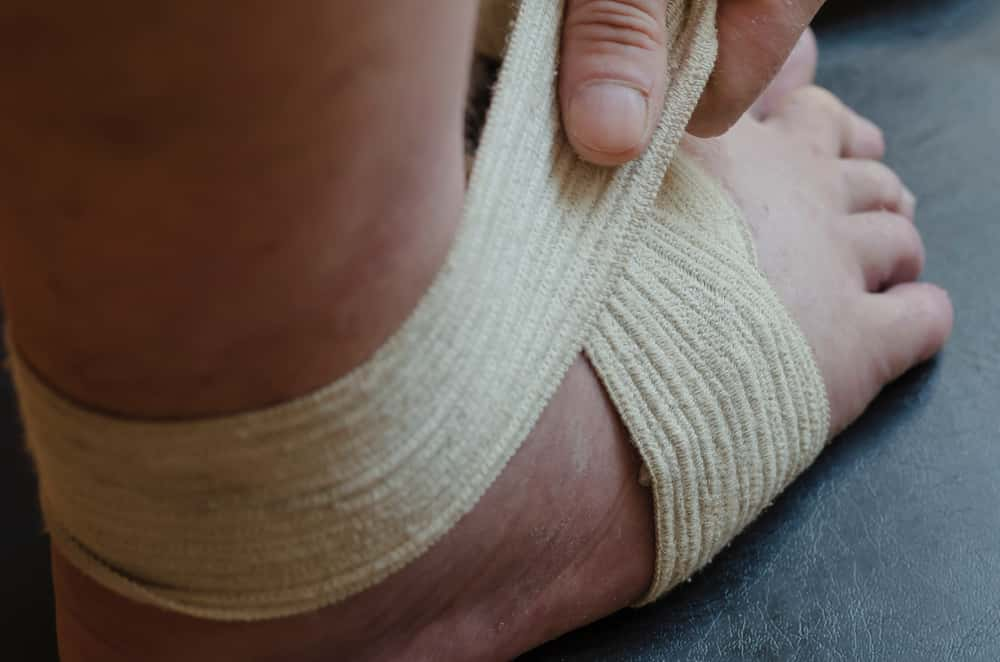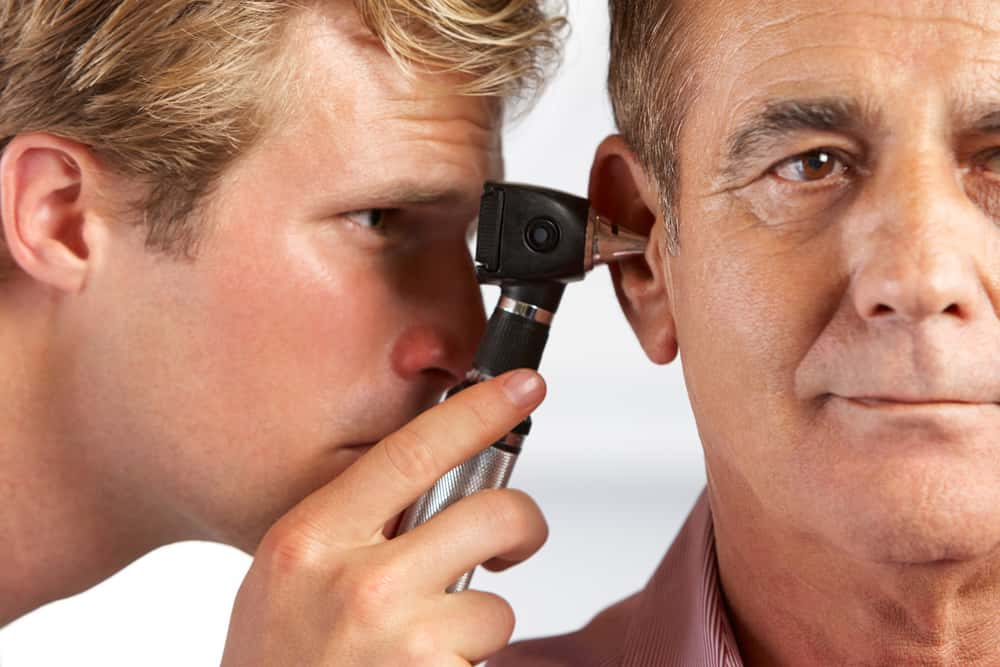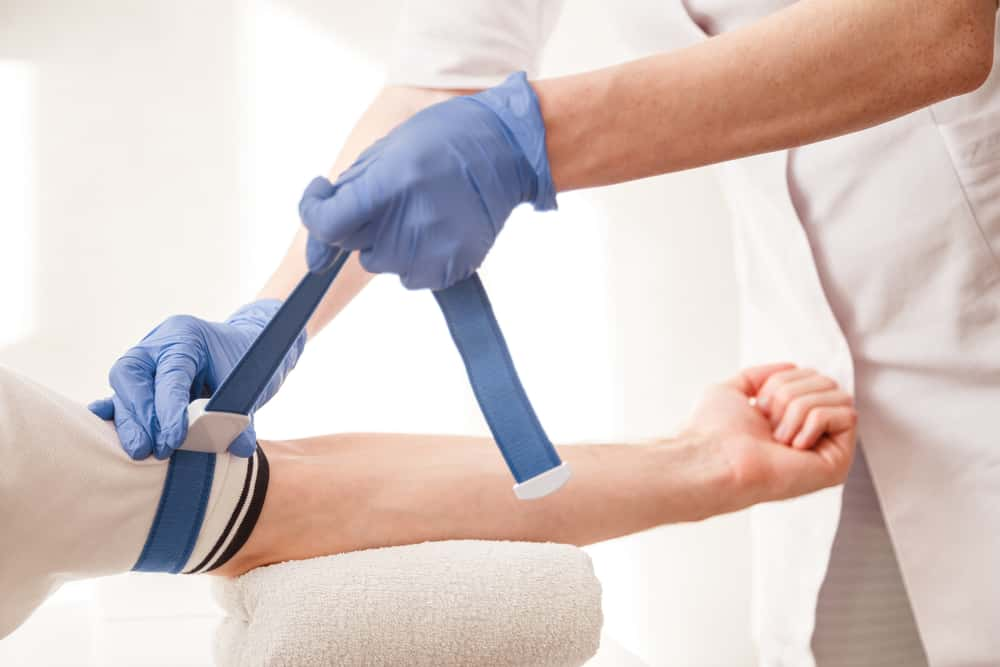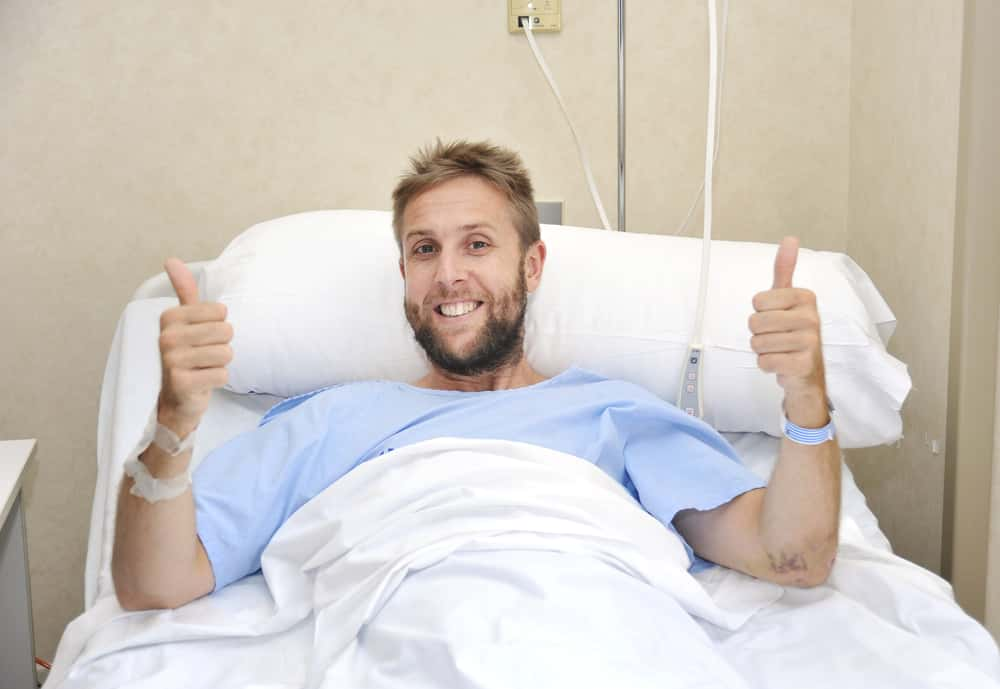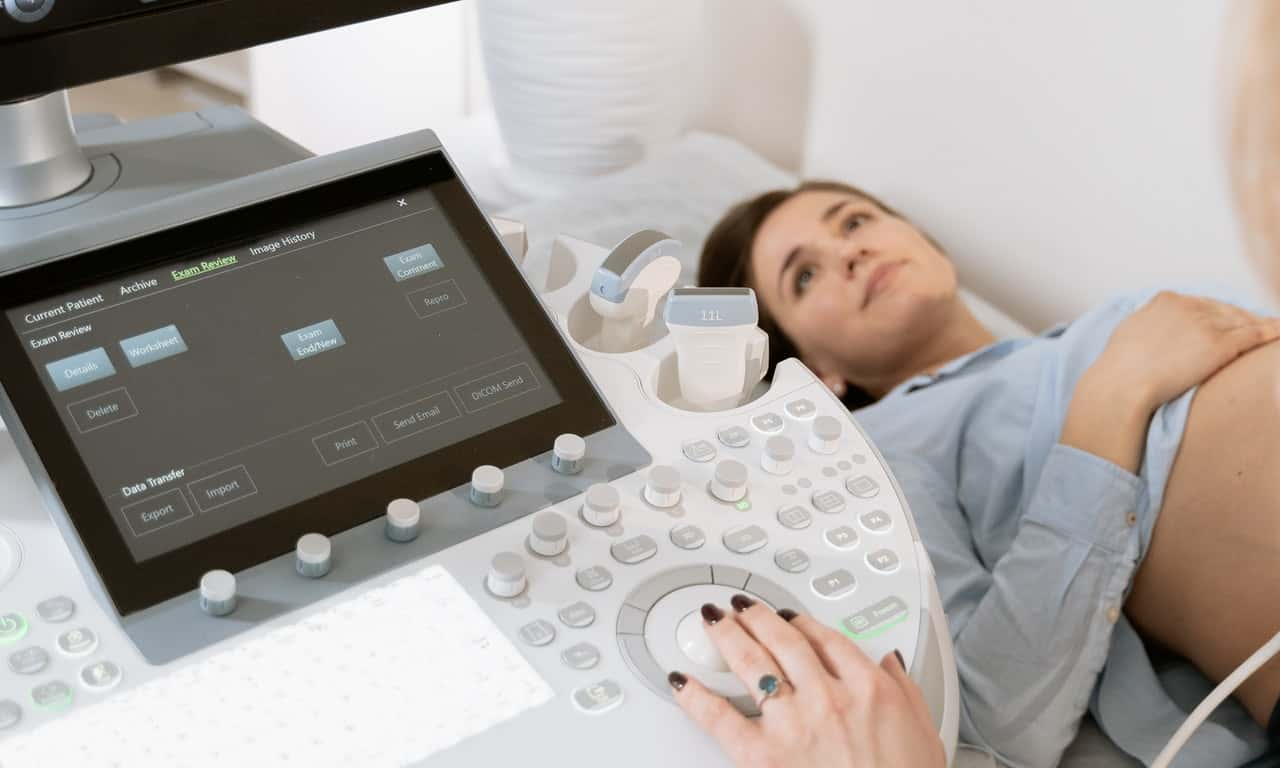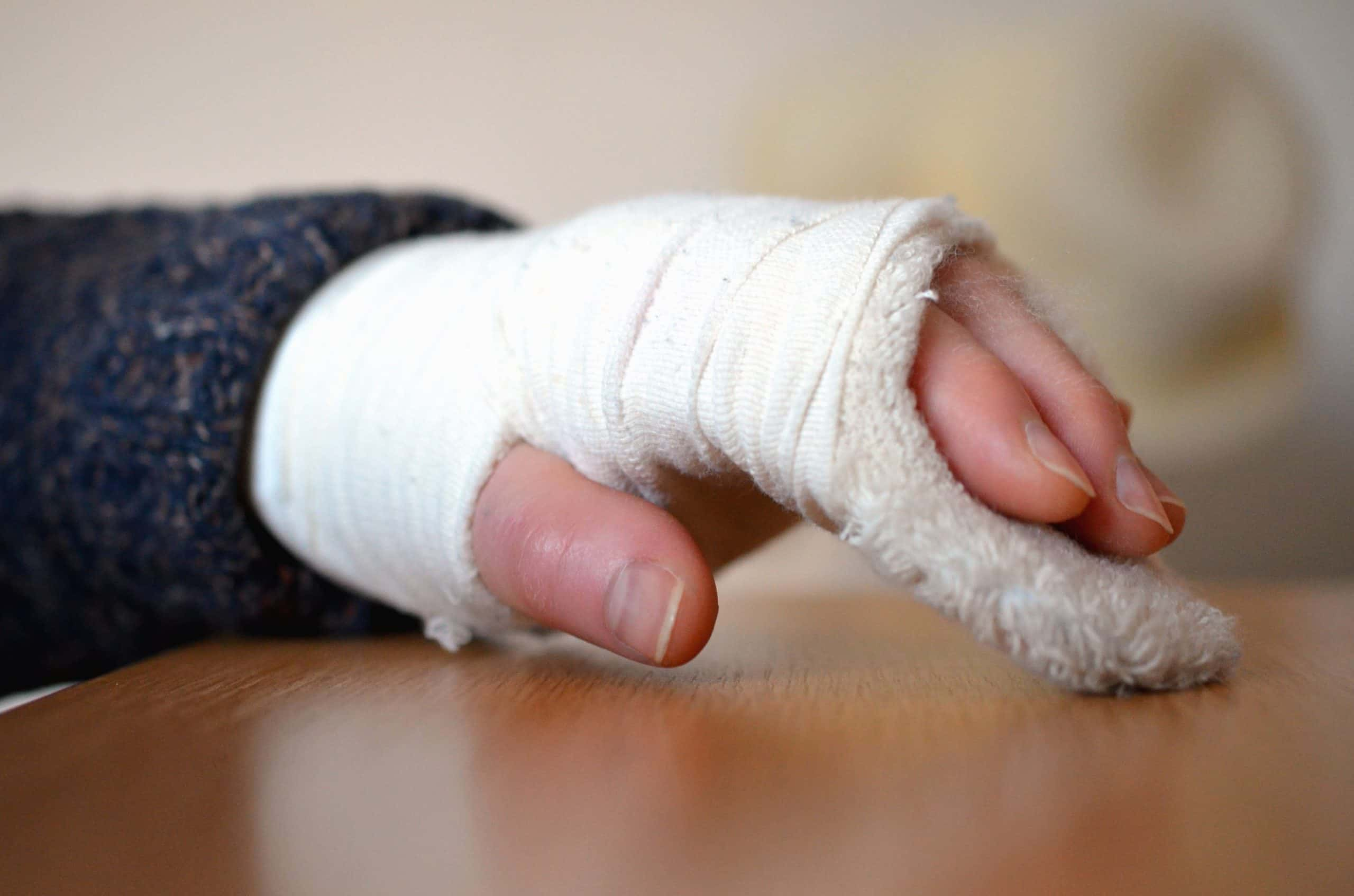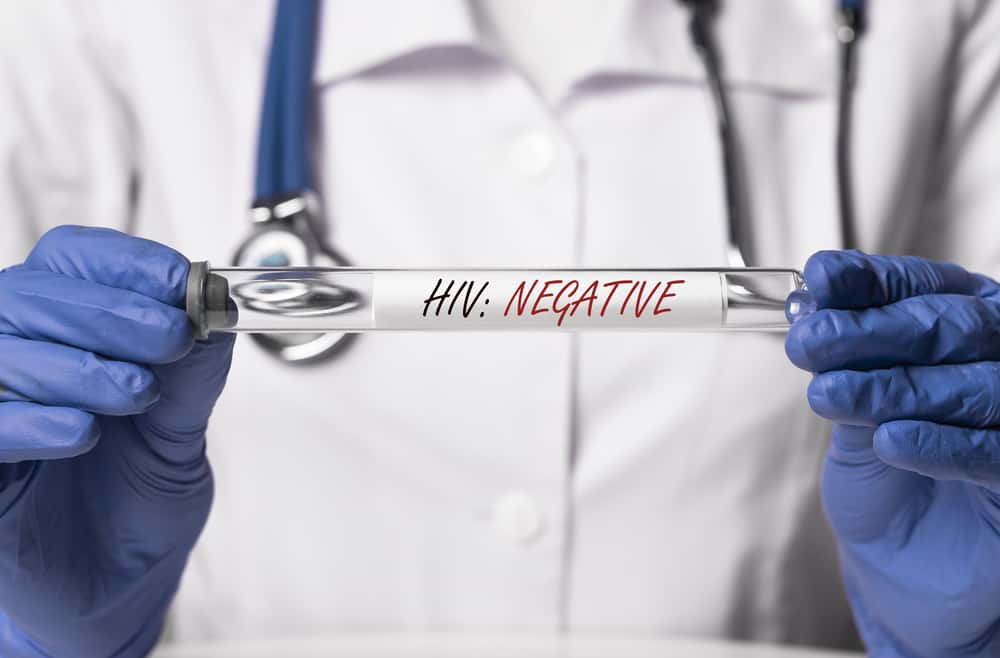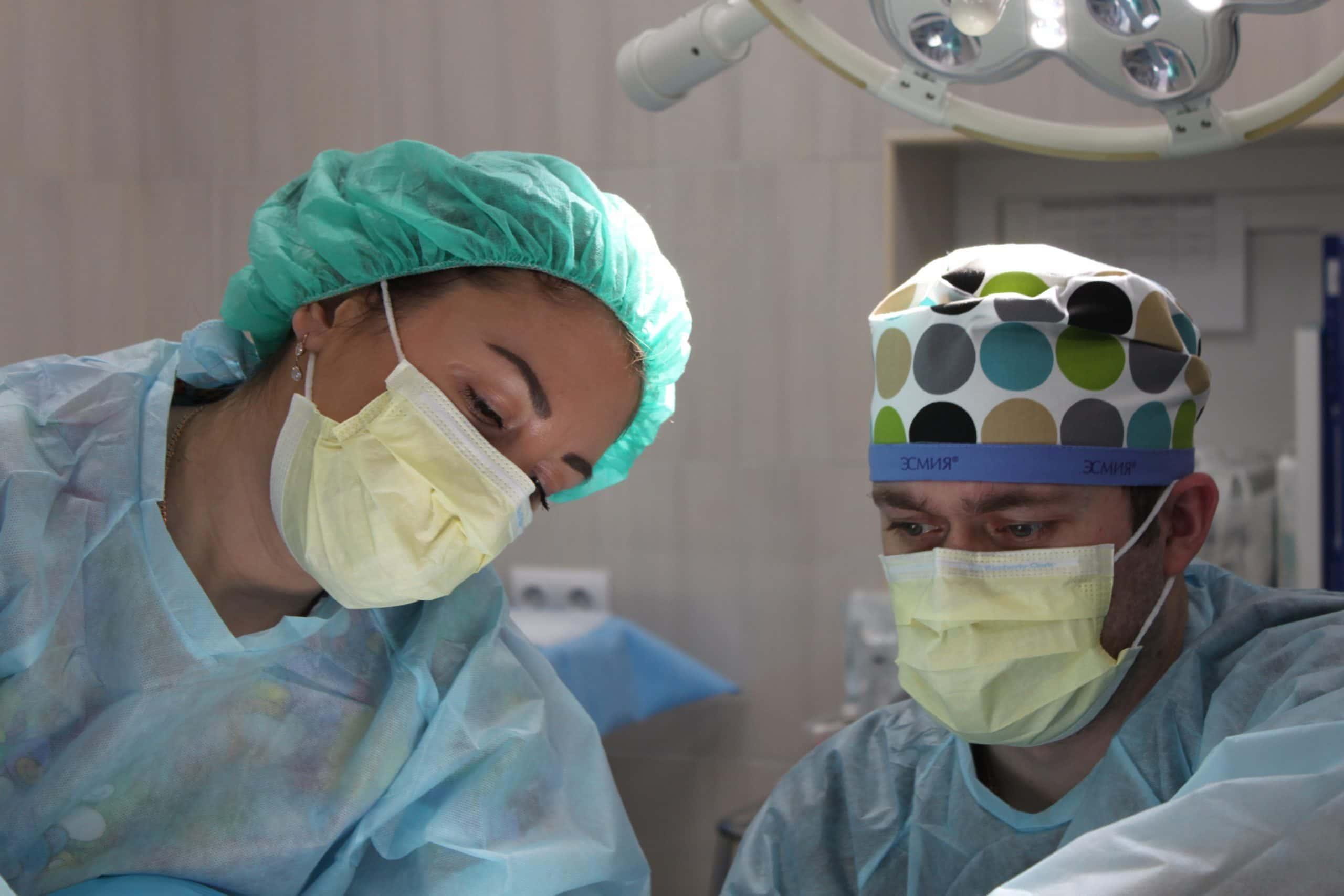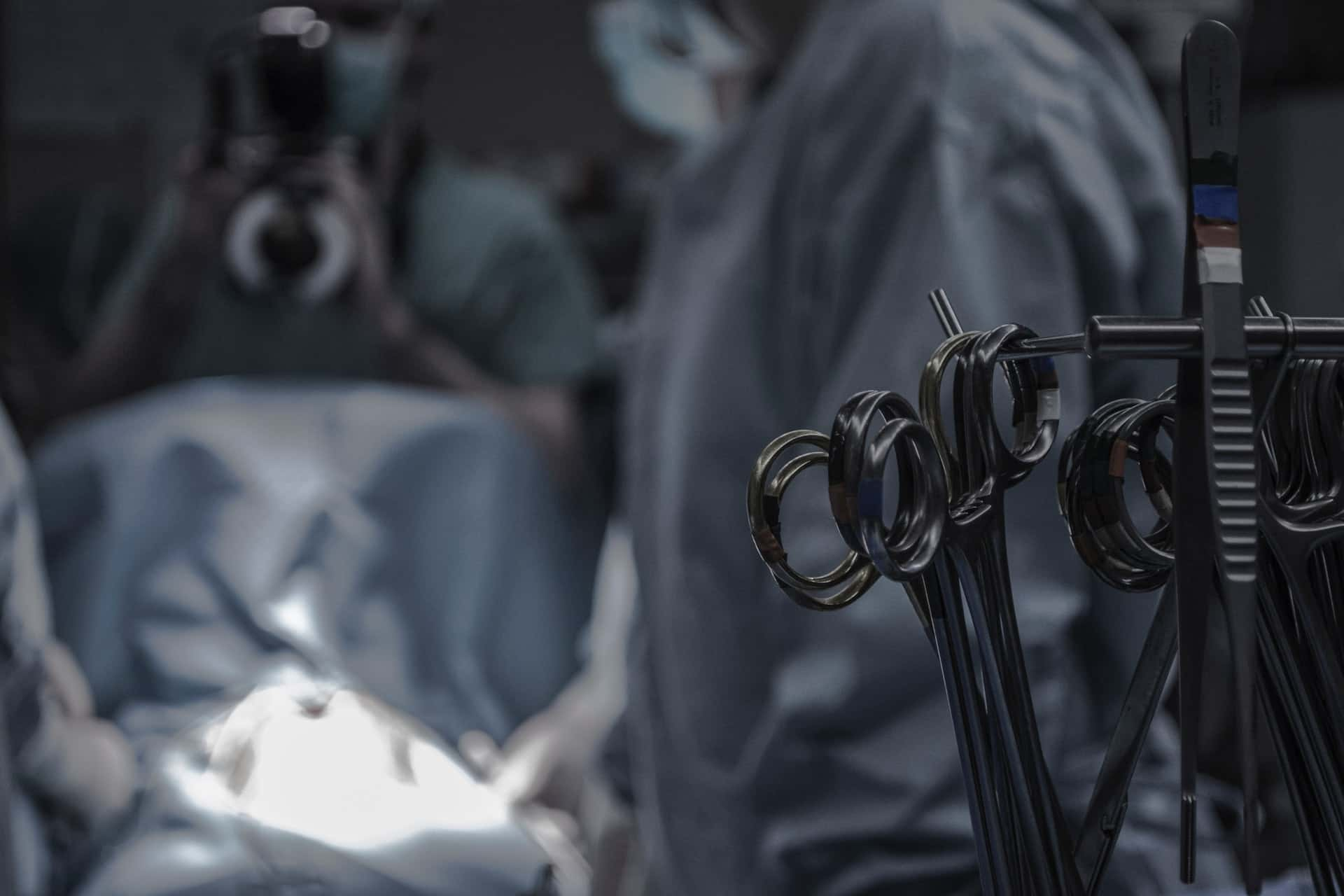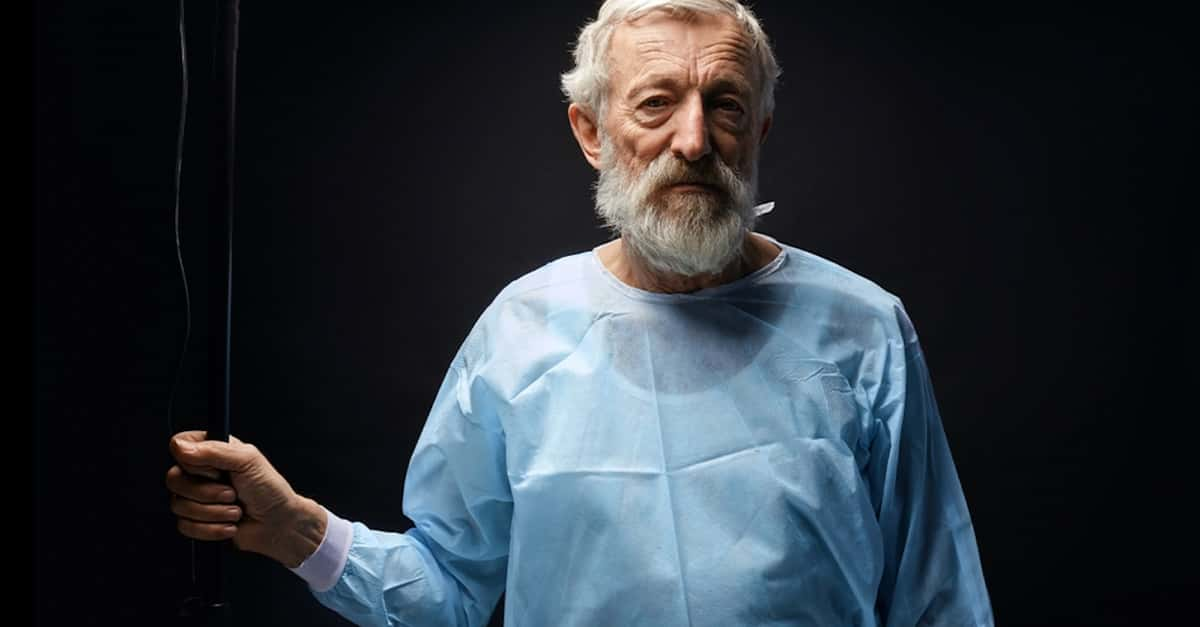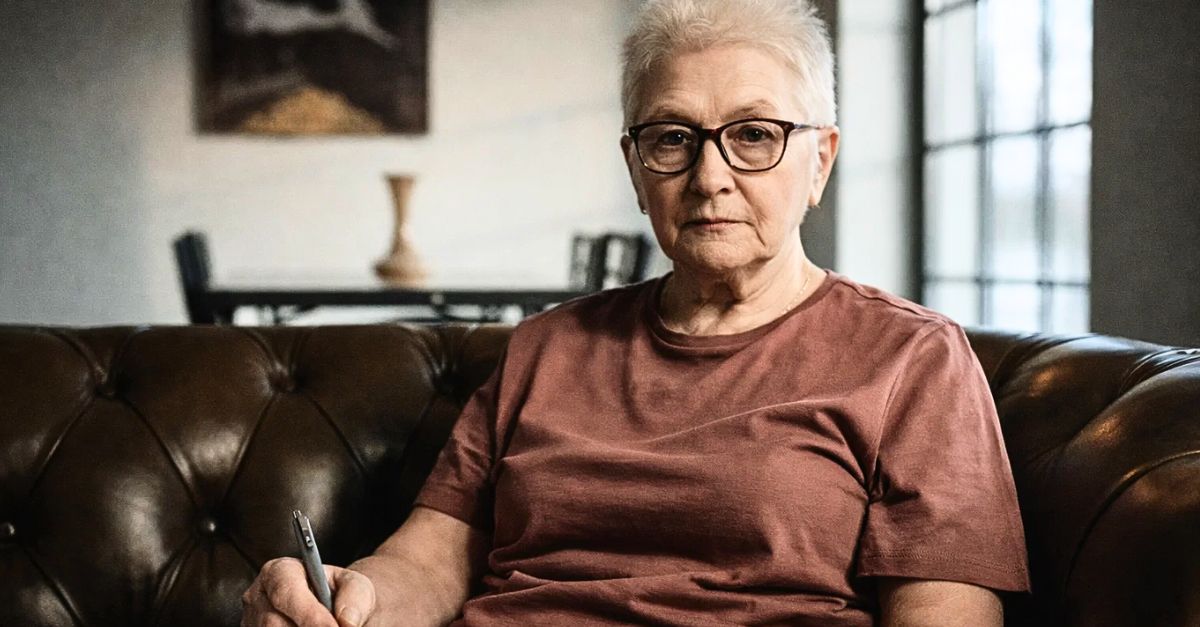Sometimes, a normal trip to the doctor can devolve so wildly out of control that it turns into a nightmare. These doctors and patients shared their stories of their absolute worst medical moments—and they're absolutely terrifying.
1. Drawing Blood From A Stone
Before medical school, I worked as a phlebotomist to gain exposure to hospitals. When I worked the night shift, our daily list of blood draws would print off around 1 AM, and I would start getting blood on the floor around 4 AM. I got really good. I could sneak in, lights off, tell the patient what I was doing, quickly draw blood, and get out with them barely waking up for it.
One morning, I went into a room, and the patient had a washcloth over his eyes. I told him who I was and what I was doing before tying the tourniquet around his arm and palpating a vein. About that time, his wife walked in and said, "WHAT ARE YOU DOING"? I told her who I was and was there to draw his blood. She said, "HE PASSED OVER AN HOUR AGO"!
I ran out of the room, apologizing.
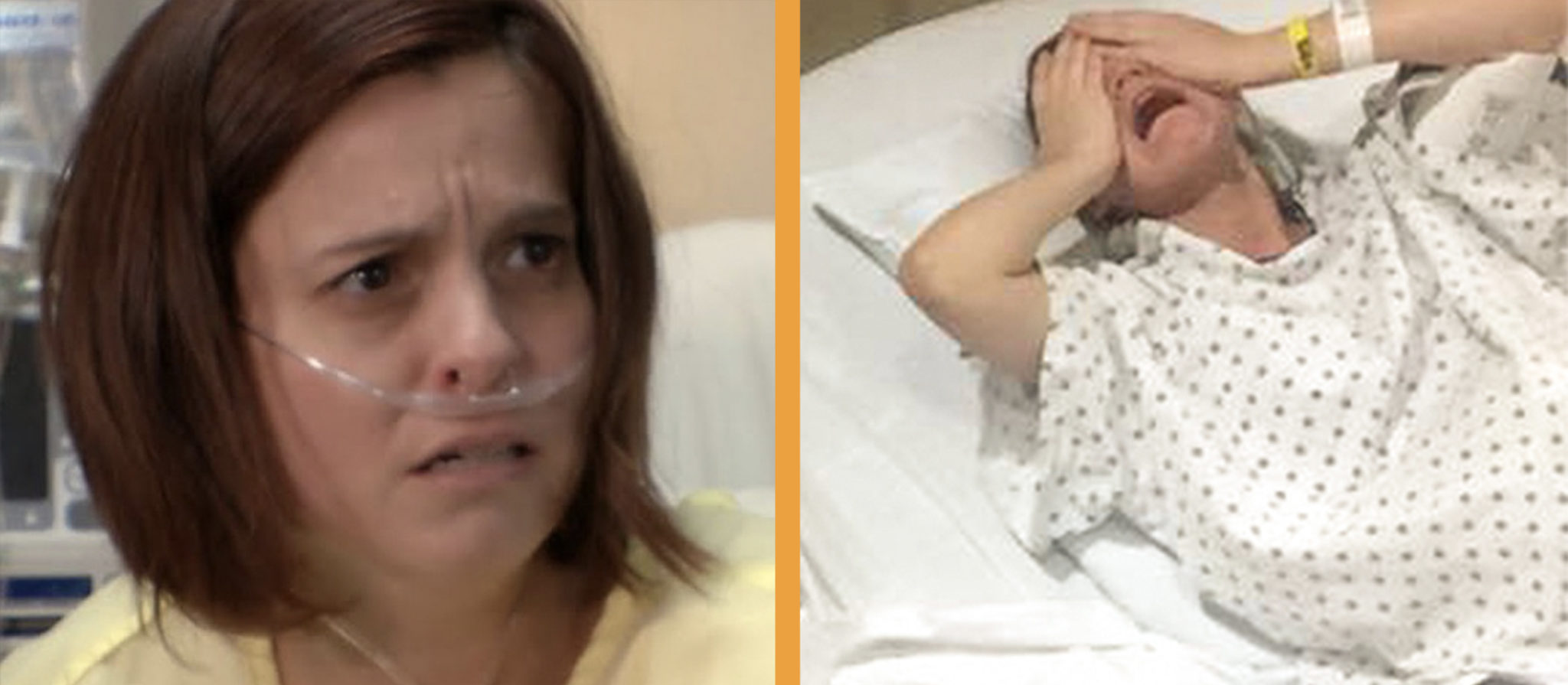
2. Handles Influenza And Brain Cells
When I was in med school on my family medicine rotation, I was sent in to see a middle-aged woman with complaints of sinus congestion. Sure enough, from the very beginning, I can tell she's really stopped up with her nasally voice, and my history and exam are consistent with your run-of-the-mill viral upper respiratory infection.
I begin educating her on symptomatic management and the following exchange ensues: Patient: "Do you think it might be the flu?" Me: "It's possible but unlikely; it's really out of the typical season." Patient: "Yeah, I guess I wasn't sure; I've been spraying Lysol everywhere and it doesn't seem to be doing any good, and it says it removes the flu bug."
Me: "Well, that's something that could help disinfect the house and keep it from spreading."Patient: "I guess, I just wish it didn't burn so much" Me: "…what do you mean, 'it burns'?" Soon enough, it all became too clear. Patient: "You know, when I spray it up my nose, it burns so bad." Yep. My patient thought that since Lysol gets rid of influenza, the best way to nip it in the bud was to flush her sinuses with it like a saline spray. It did not work, for the record.
3. Save My Life, Will Ya?
This one doctor tried to give me essential oils and told me to come back the next day while I was having a life-threatening allergic reaction. My throat was swelling up, I couldn't breathe, my eyes were swollen shut and covered in puss, and my whole body felt like garbage. This was all after she had been advised by the ER to give me a shot if I came in with the reaction.
Her office is closer than the ER, so they told me to go to her next time instead of wasting that precious time driving myself all the way to the ER. In the end, I had to drive myself 45 minutes to the ER AND 10 minutes to her office, plus the time that was spent arguing with her to save my freaking life.
4. The Real Problem Just Flu Over Their Heads
One time in college, I got pretty sick. I thought it was the stomach flu, and it would go away if I just rested and stayed hydrated. My friends forced me to go to the college health center. That place had a ridiculous intake process. They had five "symptom description" forms—one for head-related symptoms, one for stomach-related, one for breathing-related, etc. I had symptoms from at least three forms, but was only allowed to fill out one.
I chose the stomach-related because the vomiting was my most debilitating symptom. They handed me off to a pre-med student for intake. She did not seem to understand that I could have a headache and a fever because I only filled out the stomach-related symptom form. Finally, a doctor came in. I told him I thought I had the stomach flu.
He told me I was wrong and that I had appendicitis. They stuck me about 15 times before they could hit a vein for a saline IV. They took a bunch of blood for testing and sent me home with some ibuprofen, telling me they would contact me soon to schedule my appendectomy. Two weeks later, they contacted me to tell me I had the stomach flu, and if I stayed hydrated and rested, my body would heal itself after a few days, which had already happened.
5. Reckless Endangerment
I worked as an operating room porter for a number of years to help me through school. I was cleaning up after an operation on an inmate who was Hep C and HIV positive, and I was working quickly and recklessly. I stuffed the blue matting and used aprons into the garbage. As I pulled up from the trash, I made a gruesome discovery. Blood was pouring from my hand.
Unseen and unknown to me, a doctor or nurse had left a scalpel in the blue matting. It was so sharp that I didn't even feel it when it cut me, but I was bleeding profusely. The nurses and doctors jumped on it right away, cleaned and prepped my cut, and got me on special meds right away. I had to get shots and check-ups regularly for the next year. Luckily, I was okay.
6. I Know How This Goes...
I went in because I thought I had a UTI. I had been on birth control for a while, so having to go do the whole “pee in a cup” thing wasn’t new to me, but I did have to give a sample at this appointment. No big deal, I knew the drill. The doctor, however, got really weird about it. He kept asking me if I knew how to give a sample or if I needed to know any details on how to do it.
Mind you, this was after I’d already handed over the sample, which he was aware of, and it was literally clockwork at that point that it was so easy and I knew I didn’t do it incorrectly. He kept pressing the whole "peeing in a cup" thing, and he said, “Do you ever get any on yourself? Do you get pee on yourself?” To this day, I swear it had to have been some sort of fantasy of his or something because I was appalled.
One, no, I don’t have that issue, and two, why is he so interested in it?
7. Can’t Handle Everything Yourself
There was a guy who had a rare condition that required bloodletting, but he didn't have the money to afford the treatment as often as he would need it. Like any rational human being, he decided to build an apparatus at home using a shop vac, Mason jars, an IV needle, and surgical tubing. Surprisingly, he had no issues for a few weeks.
He set the vacuum to pull the blood through the tubing via the needle and drain into the Mason jars. No big deal. Except it all went wrong in an instant. One day he isn't paying attention and sets the vac to pump instead of pull. Dude switched it off after a few seconds, but he still had a massive air embolism. He's very lucky he didn't die, he “just” had a major stroke. He goes in for treatment now the last I heard.
8. This Doctor Was Pure Poison
I had a 2-year-old patient show up in the ER. She and her dad had been out in the fields in a small town several hours away from the nearest big city, where I worked. The dad took the child to the ER in the small town with an obvious snake bite. I'm still so furious when I think about what the doctor did. He shrugged and said, “Eh, it’s ok. She probably didn’t get envenomated,” and didn’t give the patient antivenom, which they had on-site.
They then elected to send the child to our hospital by ambulance instead of by helicopter. Several hours later, the patient showed up at our hospital coding and ended up not making it.
9. It Was More Than A Two-Man Job
When I was a medical student on my surgery rotation, I was with only the attending surgeon in the OR. The residents on service were otherwise busy, so the attending impatiently decided, "Fine, I'll do it with just the med student". It was a relatively straightforward case, placing a gastric tube in a patient who couldn't eat.
The attending put a scope down the patient's esophagus, and I had a big needle to push toward the scope. He shined a light towards the skin when he entered the stomach, and I pressed on the skin and saw it dent in on the screen, showing we were in the right place. I thought I took that same position and angle and introduced the needle, except it didn't appear on the screen.
I pulled back, pressed again, tried again, and didn't see it. The attending grew frustrated and told me to push the needle in deeper. I had a twinge of concern but eventually hubbed the needle, which was several inches long. Eventually, the resident showed up and tried as well. He tried introducing the needle but couldn’t visualize it.
Eventually, he switched places with the attending and, after another try, got the needle into the stomach, and we finished placing the tube. I came back after my day off, only to make a disturbing discovery. The patient had passed from internal bleeding. One of the multiple needle pokes—or possibly a cumulative effect—had injured arteries in the abdomen.
Now, I know not to ignore that twinge. I also know that even "low-risk" procedures have a risk of catastrophe and always take care to mention that when consenting patients for surgery. I harbored guilt over it throughout medical school and still had hesitation the first time I did that procedure as a resident.
10. Indoor Voice, Please
I’m a fourth-year med student and last year during my surgery rotation, I had the utter misfortune of working with a jerk of a pediatric surgeon. He was notorious for being nasty to students and residents, but honestly, with all the horrible treatment I had been getting since starting my third year, I just brushed it off as normal. That is, until we went to see a six-year-old with lymphoma.
The kid obviously didn’t want to sit still for an exam because, hello, he was only six years old and in a boring hospital, no less! The surgeon got all huffy and left the room, shouting, “It doesn’t matter, he’ll be gone soon anyways!” The patient and his mother heard every word. The worst part is nothing was done about it because hospitals protect surgeons.
11. What Are The Benefits Here?
I once had a young teenager with sickle cell disease who had been in the hospital for around a week already. He then decided to "manage" his pain himself. This was a few years ago, but I caught him pretending to take his meds. He would tip his head back and gesture that the pill went into his mouth, but really he either kept it in his hand or threw the pill behind his back.
He was also quite a talker, which I then assumed was a tactic to try and distract me. I kept seeing his odd behavior and caught him doing this a 2-3 times by the middle of the shift, so I was definitely onto him. He had a PICC line (which is essentially a long IV where the tubing goes all the way to your heart) in his left arm. I couldn't have imagined where this was going at the time.
I noticed that it was quite a bit more swollen compared to his other arm. Sometimes clots can happen in PICC lines, so that was my biggest concern at first, but the line was drawing blood fine so I know it wasn't clotted off. Told the doctor, then I drew blood from his PICC line and sent it down to the lab for it to be cultured to see if there was any bacteria.
Low and behold, it came back positive for a bacteria that is commonly found in tap water and usually not a source of infection in PICC lines. Fast forward a few hours later, he confessed that any oral medication he could slip by the nurses, he saved for later in order to crush them up himself, try to dissolve it with sink water in the bathroom, and inject it into himself via his PICC line.
12. A Gut-Wrenching Ordeal
From the age of about 17, I started getting chronic abdominal pain every day and terrible gut problems. It was so bad, and I couldn’t eat much. I would get fluctuating diarrhea and constipation, and menstruation became more and more painful. I started losing enormous amounts of blood, despite being incredibly small. It seemed like a gynecological problem.
However, my doctor, who was a woman, insisted it was anxiety and said she "wouldn't bother testing for or treating a gynecological problem unless I was older and was having trouble conceiving." I'll never forgive her for that. Over the next few years, my gut and uterus symptoms slowly deteriorated. I was bounced around the system to dozens of different specialists.
I was told it was just stress, anxiety, even possible pregnancy, and was told to take various over-the-counter products. Meanwhile, my gut function slowly ground to a halt. A functional gut test showed it took me six hours to pass an egg sandwich when it should have taken 90 minutes. I was losing weight and bowel control. No treatment seemed to work.
At 24, I was unable to work because I was literally uncontrollably pooping my pants. Doctors suggested I should seek therapy and suggested I was exaggerating. One day, I saw a new general practitioner for some regular health tests. I received an abnormal Pap smear. Within two weeks, I went in for an exploratory laparoscopy to rule out cervical cancer.
They discovered I was riddled with endometriosis—on my bowel, on my cervix, on my perineum, on some ligaments, even in my gall bladder. I also had an ovarian cyst the size of a tennis ball. I had excisions and treatment and was able to get my gut function back within three months, although I would never be able to have children.
If the doctor I went to at 17 had just done her job, I wouldn't have lost seven years of my life, my gall bladder, fertility, and mental health.
13. Her Decline Was Maddening
During my residency, we had a lady in her 60s who was getting progressively more forgetful, just overall declining and getting less and less able to take care of herself. She saw her primary care physician, who diagnosed her with dementia, and a neurologist who agreed with that diagnosis. Although she could not provide an accurate history, after talking to her family and friends, it became apparent that her symptoms were progressing unusually fast.
But something was just...wrong. I remember seeing the point where her new hair growth met her bright red hair dye and also her grown-out nails with hot pink polish. I thought that it obviously wasn't too long ago that she was not only taking care of herself, but going to get her hair and nails done. However, the lady who was in front of me was far from that.
The neurologist I was training with recognized this and had her admitted. He did every test, including a lumbar puncture. The workup eventually showed Creutzfeld Jakob disease—mad cow disease, which unfortunately has no treatment. She passed a few months later, but at least we were able to prepare her family for her inevitable decline so that they could make the proper arrangements.
14. I Labored Over This One
I had a patient years ago for induction of labor. I knew her IV was good because I had put it in myself, and it hadn't blown. I kept turning up the medicine per protocol but no contractions. Later that afternoon, I moved the bed and discovered the IV had come apart, and I had been giving the floor oxytocin for hours. I replaced the contaminated IV parts and plugged them back in.
However, I wasn’t thinking far enough ahead—and that’s when I made a serious mistake. I didn’t realize I was essentially starting her meds at ten times the starting dose. She immediately started having contractions, closer and closer together until it was one big constant contraction, and we couldn't stop it. She was rushed to the OR and had an emergency C-section under general anesthesia.
It was completely what you don't want in a birth experience, which also carries a significant risk of complications. I felt absolutely terrible, and they wouldn't let me tell her and apologize. The family never knew what happened or whose fault it was. Fortunately, there were no adverse incidents, and the mother and baby were safe.
15. A Waste Of Time
I went to the doctor's to get my chest checked. He basically just held and caressed me in a seemingly unprofessional manner, but at the time, I didn't realize it. Due to my chest causing me a lot of physical pain, I asked him about my options regarding a reduction surgery. His response shocked me. He got visibly angry and told me to never even think about it.
He even went as far as to call them "beautiful and tender". He was well in his 50s, and I was 18 or 19 at the time. So basically, I paid like 50 dollars for Master Roshi to ignore my health issues and leave me no choice but to find another doctor who actually wanted to help me find a solution.
16. Not So Hip
My grandfather-in-law has severe dementia. He lived alone but my mother-in-law and I visited him three times a day to make sure he eats and takes his meds. A few weeks ago, he couldn't get up in the morning and he said his hip hurt, so we drove him to the hospital. But because of the pandemic, she wasn't allowed in the ER, leaving him sitting alone there for four hours.
Guess what he told the doctor when he asked him what was wrong? "I don't know". Of course, he doesn't. He has dementia. He just sat there, not knowing what was going on. So the doctor calls my mother-in-law and told her he was fine and that he could go home. My mother-in-law was skeptical, so she asked him point-blank: "Can he move? Can he go to the toilet alone?"
The doctor simply replied, "Yeah, he's fine". He then gave the order to load my grandfather-in-law up, but here's the thing—two guys had to carry him in a special chair because he couldn't even manage to walk the short distance into the house. All of this transpired on a Friday, and we proceeded to spend the weekend at his place to look after him.
On Monday we brought him back to the ER and guess what? No, really guess what was wrong with him. He had broken his hip. This man walked around for three days with a broken hip. But, sure. He's fine.
17. Full Of Heart
One time when I was in nursing school, I was doing ER clinical and a guy came in with “penile pain.” Long story short, several days prior, he decided he wanted a texture implant to help enhance pleasure during bedroom activities for his lady friend. He and his buddy got tipsy (of course) and decided to do it themselves. It couldn't have gone worse.
They went in his garage and took a box cutter to slice open the skin on the dorsal (top) side of his member, made some room between the skin and underlying muscle, and put a small porcelain heart underneath. Then he superglued it shut. To make matters worse, the guy didn’t wait for it to heal and decided to take it for a test run immediately.
He ended up with a major infection and presented several days later. I, unfortunately, don’t know the outcome; I was just there for the porcelain heart extraction.
18. Dental Dilemma
I went to a dentist's office for several years and was repeatedly told to get braces and remove my wisdom teeth. Both of these posed an issue since I played trumpet for a living. Performing at a professional level would have been difficult to impossible with braces, and having my wisdom teeth out would put me out of work for at least a month during recovery. I told this to my dentist repeatedly.
I decided to get a second opinion about the wisdom teeth, so I went to an oral surgeon to have them look at it. That's when I finally learned the truth. They took X-rays and looked at the records from my dentist. He said, “So, you're experiencing a lot of pain in your wisdom teeth, according to your record.” I told him I was not and never had. He then told me, “So, I'm just going to assume your regular dentist falsified the rest of your record too, so I can put this folder down and do my job.”
He then explained that the way my wisdom teeth came in, they were sitting on a nerve that would be next to impossible not to cut in the process of removal. That would leave me without feeling in the lower half of my face for the rest of my life—obviously a major issue, given my career. I was advised not to worry about them if I was not in pain.
I eventually needed to extract a tooth adjacent to one of my wisdom teeth, which my regular dentist completely blew off when I asked about it. I never went back to my original dentist.
19. It Wasn’t All In Her Head
During my psychiatry residency, I was working in the Psych ER when we got a transfer from the main ER. Her family had brought her in for altered mental status that had been getting gradually worse over the previous two weeks. All her labs and vitals were normal, so she had been "cleared" by the ER doctors, and I was told she was likely having "a mental break-down" or psychotic episode.
I went to assess her. She was non-responsive, staring off into space, crying and shaking her head back and forth and mumbling. She could not answer any questions and seemed to be having a tremendous amount of anxiety. One of the biggest lessons my mentors taught me was to assume that a change in mental status was always a medical condition until proven otherwise. Then you could think about psychiatric causes.
Within a couple of seconds of seeing her, I had an intense gut feeling. This was not psychiatric in nature. I looked through her chart and saw she had a history of blood clots in the past. Her vitals were rechecked, and again they were totally normal. At that point, I made an executive decision and ordered a stat CT of her chest to look for a possible clot.
The technicians who came to take her for the study were slightly confused as to why a psych resident was ordering this. The radiology team even called me and wanted to make sure I had not ordered it by mistake. Thirty minutes later, I got a call from the on-call radiology resident, and she said, "Are you the psych resident that ordered this CT?"
I said I was, thinking I was about to get some comment about wasting their time. She continued, "And this patient is in the psych ER?" I confirmed. She then told me, "Well, you better call the ER and have her transferred STAT because this lady has the most massive pulmonary embolism I have ever seen and will likely code any second.”
With that, we transferred her back to the ER. She was admitted to the hospital and treated for her clot, and within a few days, she was back to normal. From then on, whenever someone would make a joke about psychiatrists not being "real" doctors, I would tell them this story, and that would settle it.
20. Paper Trail
I worked in palliative care, and I sent a patient home to see if he could spend his final moments there instead of in the hospital. We weren't very hopeful but thought it would be worth a try. To no one's great surprise, he ended up coming back a couple of days later for whatever reason. Since I knew him, I re-admitted him.
I knew he wanted to be a DNR (do not resuscitate), so I wrote it on my notes. But there was one crucial thing that I forgot. However, I didn't re-fill out the hospital paperwork. The next day, I got to work to discover he had coded and was on a ventilator in the ICU. Instead of passing peacefully, his wife had to make the decision to turn off life support.
My entire job at the end of life is to ensure as good a passing as possible. In one simple omission, I messed that up royally.
21. Daughter Didn’t Know Best
I was a hospice nurse for ten years. I admitted a patient with cancer who had intractable bone pain. Based on my assessment, I expected it to be a week or two before he passed. In his case, the only medication that gave him any relief was morphine. His wife did a great job taking care of him and giving him his meds as we planned.
It was very effective, and he was comfortable. As he came closer to losing his life, he slept more, which was normal and expected. One of his daughters flew in to be with him at the end. She went bananas that "daddy was on morphine" and raised so much trouble that his wife freaked out and caved to her demands. She revoked hospice and called the ambulance.
When he got to the hospital, the daughter told them that he had taken too much morphine, and the ER room doctor gave him Narcan. What happened next was absolutely horrific. He came out of it screaming in pain and didn’t stop. He stayed in the hospital until he passed, and he suffered. It's been years since this happened, and it's still the worst nightmare of my nursing career.
There wasn't anything I could have done, but I still feel bad about it.
22. All Pain, No Gain
When I was 13, I was rollerblading and I dislocated my knee. I didn’t have a cell phone, and I was in a secluded residential neighborhood alone at like, 1:30 in the afternoon on a weekday. So, I just laid there for a couple of hours until an adult found me and I called my grandma. Because I’d been laying there so long, by the time I got to the hospital, I was still in a lot of pain, but I had pretty much calmed down.
My knee had popped immediately back into place, so it was not visibly dislocated. They took my blood pressure, and it was normal. Between my lack of tears, my normal BP, and the fact that my knee was only swollen, the doctor refused to do any imaging. He told me nothing was wrong with me, and then lectured me about wasting the ER’s time.
He told me if I had truly suffered that injury, he would be able to see it and that I'd be howling in agony. His mistake will haunt me for life. I kept going to the doctor to have it looked at though because it kept hurting. Every six months for two years, I was still in a lot of pain. The doctor refused to ever do any imaging and just kept telling me there was nothing wrong.
At the year-and-a-half mark, he told me that I was never getting my hands on pain pills and he even went as far recommend that I see a mental health therapist. Turns out, I have a connective tissue disorder that both makes injuries like mine more common, and also causes me to have low blood pressure, meaning that my “normal” BP in the ER was actually an elevated one for me.
I was 15 when I finally got them to see something was wrong, and I was referred to PT. My knee never went back to how it was before the injury, and the PT told me I could have regained all my strength if Id pursued PT right away.
23. Where Do People Get These Ideas
I had a patient who came into the ER with a chronic cough which was not resolving. She subscribes to holistic medicine and lives out in the bush. She had been struggling with this worsening cough and feeling unwell for about two entire months before she came. The whole time, she was taking a homemade bovine lung extract.
She made it on her farm. She was proud that she dried the cow's lung herself. I suspect she either inhaled bacteria or she aspirated some of it. In any case, she now had a huge lung abscess. She required a lung pneumonectomy (removal of her upper lung). Pathology came back with some bizarre bacteria I never heard of, nor was taught in medicine.
She survived and has become my patient, but I still never see her unless her home remedies fail. She never really learned her lesson but has thankfully sworn off the bovine lung extract at least.
24. My Original Diagnosis Was Hard To Swallow
When I was in college, I got to where I couldn’t swallow. It started with difficulty swallowing and progressed to me having to swallow bites of food multiple times and regurgitating it. It then got to where all I could swallow were broths and mashed potatoes with no chunks. I went to the doctor numerous times and was told every time it was acid reflux and part of my anxiety disorder. I had lost 30 pounds and was just generally miserable.
Finally, my grandma was tired of watching me be sick all the time, so she called the GI doctor herself. They said we needed a referral, but she explained the situation, and they got me in the next day. They did an endoscopy and found my esophagus was 95% occluded at the gastroesophageal sphincter. For some reason, some of my primary doctor’s notes ended up in my discharge paperwork. They showed me, and I've never been so angry.
She had told them it was acid reflux and that I was being over-dramatic. She stated she did not recommend they do the procedure. I switched doctors.
25. College Life Isn’t Easy
I was an EMT ending my first year working at a collegiate EMS squad. Our dear college was known for drinking and going a little too hard in the party department. Although we get a good amount of trauma and other medical emergencies from sports events and other stuff around town, we get a whole lot of intoxication calls. I once got a call that seemed like a standard one of those calls.
The female patient was embarrassed we had been called, was really distraught, and crying. She refused to talk to my two crew partners or me. At least we were able to get a full suite of vitals that were all normal. I went to put her shoes on to get her ready for transport to sleep it off at the college's inpatient department, and she refused to let me touch her.
She picked the only female EMT out of the three EMTs and the three college security officers there and said she only wanted her to help her. So, the males in the room stepped outside for a second because, at that point, we were a little suspicious. This girl also was leaning against her own bed and didn't know where she was, how she got there, or what time it was.
She knew her name, but some things seemed off. Then she told the female EMT she felt unsafe and didn't trust us. Once we transferred care, the only follow-up we got on her was that it was a probable assault, which was on my mind after the call ran its course but didn't occur to me immediately. After that call, I went into every scene looking for signs of victimization, which is often related to drinking and is a problem on many college campuses.
26. The Judgmental Nurse
A couple of years ago, I had to get blood drawn at a lab. When they called me in, I sat down in the chair and laid my arm out on the table so they could draw the blood. At that point, some old self-harm scars on my arm were still pretty visible (and it’s something I’m very self-conscious about). The phlebotomist gasped when she saw it, and she made a disturbing remark.
“How ugly! What could have ever made you do that to yourself?” She just stood there, expecting an answer. Her tone was not of genuine concern, but more of disgust. I told her it was private and then asked if she could just start the blood draw. I had to repeat that multiple times before she actually started. While she was doing it, she continued on telling me that I’m “too young to be depressed” and that the scars were “such a horrible thing to do” to myself.
I couldn’t get up and run out the door because there was a needle in my arm. My face was so red and I had tears in my eyes. I became so embarrassed and upset that I couldn’t say anything. I just waited for it to be done, and ran out the door. I found an online feedback form for the company and left a complaint there, plus a voicemail on their customer service phone line.
I got no response, but I just hope someone spoke with that person about it, and that no one with self-harm scars is made to feel as embarrassed and ashamed as I was.
27. Under Pressure
I was a pharmacist working alone on a Saturday. Before closing, a woman brought in 19 prescriptions for her husband, who had just been discharged from the hospital. Then a swarm of people came in after her, and I kept getting interrupted by people who refused to wait until the next day for their Xanax. One of the prescriptions was for isosorbide mononitrate, a heart/blood pressure pill.
It was written for half a tab daily, and I filled it with instructions for one and a half. It was an average dose that I saw often and was well within the dosing guidelines, but it was too much for him. Several days later, he was re-admitted for low blood pressure, and the prescribing physician caught my error. I called his wife to apologize as soon as I found out. She was understanding.
I offered to pay for the out-of-pocket costs of the additional hospitalization, but she would not accept. Unfortunately, he was a very sick man and passed two weeks later of issues not related to my error. It could have been much worse, but it really made me realize the lack of help that puts so much strain on pharmacists.
It haunted me for a while, but I was able to get over it.
28. In A Complete Panic
As a paramedic intern, I had one call, in particular, that stuck with me. We were called out for an early 40s male with chest pain. We got there to see a healthy guy sitting in his car, breathing hard. I got a history from his wife and an initial assessment of the patient. He didn’t have any history except for having anxiety problems and was previously treated for overdoing his anxiety meds.
The patient described his symptoms as being just like when he had bouts of panic. I hooked him up to the monitor, and everything looked fine. He had a slightly elevated heart rate, but his other vitals seemed to be within normal limits. I got him loaded into the ambulance and began the 20-minute transport to the hospital. I started treating him with meds for the chest pain protocol, and I started an IV.
Then, he told me his chest didn’t hurt anymore, but he couldn’t breathe. His vitals didn't line up with respiratory issues, but I put him on high-flow oxygen just to be safe. As soon as I got the oxygen on him, he started losing it. He told me he needed to get out of the ambulance. He started standing up, ripping all the wires off of him, pulling the oxygen off, and even pulled his IV out.
I struggled with him to keep him on the gurney and calm him down. I started another IV, which he pulled out. I hooked him back up to the monitor, but he pulled it off. Same with the oxygen. The situation turned into me having to physically hold him down to keep him from jumping out of the ambulance on the freeway. I ended up having to be pretty stern.
I was yelling at him to sit down and stop resisting. I gave what little report I could to the hospital, holding the radio in one hand and his shirt collar in the other. All I could tell them was we had an agitated patient initially complaining of chest pain which had resolved, and he was now seemingly having a panic bout.
I didn't use the words "panic attack" because it wasn’t my place to diagnose, but the description of the situation spoke for itself. I had no current vitals to give them, cardiac rhythm, nothing. I couldn't even get him to keep an IV in. When we finally got to the hospital, we wheeled him in, still holding him down. The moment we transferred him to the bed, things turned from bad to worse.
He went from an agitated guy to a full cardiac arrest instantaneously. We worked him up in the ER bed for over 30 minutes. After the doctor called the time, he came out of the room with us, looking confused. "I thought you were bringing in a panic attack". So did we. To this day, I have no idea why he passed or what was wrong with him.
I couldn't stop thinking that there was so much more I could have done for him had I been able to manage his anxiety.
29. She Was A Mess From Beginning To End
I was in nursing school, and several of our clinical rotations were done at a sub-acute long-term skilled nursing facility. There was one patient there who was in her 80s, and she had just had her second above-knee amputation. She had multiple bed sores, CHF, and horrible diabetes that she never controlled. A classmate and I changed her brief and did some simple wound care on her.
I held the patient over to my side of the bed while my classmate cleaned her up. The patient started frantically grabbing at me. She had a history of anxiety, so I soothed her as my classmate finished up. We laid her on her back and elevated her head so she could catch her breath before I did my side. She seemed more at ease and let us finish up, but as we were leaving the room, she coded.
This facility was so small that most of the doctors only came in once a week, and none of them answered their phones to give orders during the code. So, the nurses and a respiratory therapist ran it. Her intubation was harrowing, with blood coming out of her mouth. Her ribs were broken during CPR. That's how her daughter saw her.
She never came back to consciousness. It was my first time talking to a family about DNR and what they wanted us to do to keep her alive. The daughter signed a DNR about 36 hours later, and the patient was gone the next week when we were there for clinicals. After that, I became a lot more in tune with patients when they try to get me to do or not do something.
Even if they don't know the reason for it, there always is one.
30. Those Jokes Aren't Funny
I'm a psych nurse and was escorting a resident from a mental institution to the public health department for a vaccine. The doctor asked for his address, and they replied with the name of the mental institution. The doctor then quipped, "Oh, is that where all the dangerous lunatics live?" with a big stupid grin on his face. Oh, but the worst was yet to come.
Bear in mind that this particular patient was diagnosed with paranoid schizophrenia AND had tried to end someone in the past. I was just like, what the heck, man? "Did he actually say that?" The patient just ignored it. The doctor gave him the vaccine injection in his arm and then said, "I just injected you with poison; what do you think about that?" with another stupid grin on his face.
I thought to myself, "If this patient starts punching the doctor, I'm gonna let him land a few punches before I intervene". Nothing happened. I got out of there quickly, then later checked in on the patient. He was fine—he thought the doctor was just making stupid jokes which weren't about him because he wasn't mentally unwell. I made two complaints about the doctor—one to his boss and one to our chief psychiatrist.
31. Just Making It Worse
I had a patient come in complaining of pain in her arm. I looked at where she points and it looked like a cyst, but it was pretty deep. She said it was a recurring problem and it just kept coming back. I flipped through her chart and the first instance of that weird lump was nearly a year ago. I do some more reading on her chart. Its contents made everything disgustingly clear.
I found out the patient would come in every few months for the same issue, but in-between, she would use a kitchen utensil to dig it out despite being told multiple times not to, you know, do surgery on herself at home. That was probably why there was so much pain to the area and why it was now burrowed so deep underneath the skin.
I phoned the doctor on-call, who asked me a bunch of questions. In the end he said, "I don't even know what to tell you. I'm referring her to surgery. And tell her not to take a sharp object to it again!"
32. I Should Have Trusted My Gut
When I was in training, I saw a child suspected of having meningitis. Although I was new to pediatric medicine, I had a gut feeling just by looking at the 4-year-old patient that he was too sick to have a regular childhood illness. The thing that tipped me off was the child was having a slight delay in his pupillary reflexes. Something was seriously wrong.
After seeing him, I asked the head pediatrician to do a lumbar puncture to investigate the spinal fluid for signs of infection. She said there was no need, and all signs pointed to some airborne virus that was roaming around at that time. She believed that an unnecessary lumbar puncture could scar a child for life and whatnot.
While I disagreed, I mistakenly doubted my own assessment and assumed the doctor with more experience surely knew better than me. I shrugged, wrote everything down in the dossier, and asked the pediatrician to read my evaluation afterward. I went home after an exhausting evening, having worked almost 14 hours straight.
Three days later, the child returned with fulminant meningitis that had taken a bad turn. When discussing the patient, she remarked she noticed abnormal pupillary reflexes in the patient. Not only did she discount my suggestion of doing a diagnostic lumbar puncture, but she also did not read my evaluation of the patient three days earlier.
33. The Doctor’s Dismissiveness Was Galling
My sister had her gallbladder out. She had routine surgery and two days later woke up at 4 AM in searing pain. She went to the ER by ambulance, and I met her there. The ER docs were all convinced she was a drug seeker and did not even conduct a physical exam beyond taking her vitals. They told her to shut her up because she was just yelling, “Help me! Help me! I'm dying!”
They eventually did an MRI but said it was negative and sent her home. She didn’t want to leave and insisted something was terribly wrong. However, they said they would call security and have her thrown out. She had no history of drug or drinking problems. She continued to get worse at home and the next day went to a different hospital.
They did a workup and found that the metal clip that closed off her bile duct had cut right through the tissue. She had a large bile leak that was burning all her abdominal organs. She had to have three surgeries to fix it and was hospitalized for nine days. She was left with chronic pain from adhesions and chemical burns. But that's not even the worst part somehow.
When the new hospital finally acquired the MRI from the initial ER visit, she was told that the leak was small but clearly visible in that image.
34. Too Good To Be True
I was a registered nurse. One night I had five patients, two of who were being treated for cancer. One was responding well; one was not. I had looked through the charts briefly beforehand, noting vitals, labs, meds, etc. It was extremely busy, though, so I didn't actually write anything down. I went in to do assessments, and my one cancer patient looked good.
She looked healthy, had a great appetite, and was on the phone making plans for her daughter's high school graduation. Surely this was the gal who was responding well to treatment and was probably near remission. She asked me what her CA-125 labs were. CA-125 is a cancer marker that is one test used to measure the body's response to certain cancer treatments in some cases.
I told her they were much better. I said, "Yeah, I think they're in the 30ish range". She immediately yelled, "Oh my god, what”?!?! She started to cry. That’s when I knew something was off. I got nervous and said, "Uh, here, wait a minute, I may be confused. Let's just look it up in your chart together". I logged into the computer in her room, pulled up her labs, and her CA-125 count was sky high and much worse than it was at her previous draw.
I told her the actual lab results, and she said, "I knew it was too good to be true", and started sobbing for real. This woman was 45 years old and losing her life. I apologized profusely, and she was so gracious about it, telling me that she knew the moment I said it that I couldn't possibly be correct. She told me, "You never give up hope, you know, and I just wanted to believe so much that I might live long enough to at least see my kids to adulthood".
I ended up bawling and puking in the bathroom several times that night. I have never before or since cried at work. Later, I found out the devastating truth. No one had gone over her test results yet because they were so horrible. The doctors were conferring about whether to withdraw care entirely or try to limp her along until graduation, knowing that further treatment was hopeless, expensive, and probably not going to buy her more than a couple of weeks.
She passed two weeks later and did not live to see her daughter's graduation from high school. I will never ever give results I'm not sure about again, and I will never ever make a statement that I can't verify to a patient. I am still horrified by the anguish I caused her with my careless comment, and it has stuck with me for years.
35. Following Protocol
I was a pharmacy tech in a women's hospital. We had issues in the past with labor and delivery not returning the unused narcotics they signed out for a patient. We had strict guidelines that would be written up if meds were not returned properly. I was on break one day, and this young new nurse, who I had never met before, sat down beside me and started crying her eyes out.
She decided to unload and told me how she forgot to put aside the unused narcotics she used and threw them in the sharps container instead. I told her I worked in the pharmacy and it was OK, and mistakes happen. As long as she had her trainer vouch for her, we could just deal with it on our end; the pharmacist just needed to be called. She told me she wished she had known that an hour ago.
Her trainer made her go through the sharps container and bloody placenta-filled sheets to find this small 2ml bottle, which was put in for return to the pharmacy once found. I was floored that someone thought it was better to expose her to that instead of just calling the pharmacist to ask what to do. That poor girl had such a terrible and dangerous first week of being a nurse.
I sometimes wonder if she stayed in that career.
36. No Time For Goodbye
While in med school, I encountered one patient many times. Everyone knew him. He had spina bifida with lower-body paralysis that also led to many other problems. Despite his poor lot in life, he was always really optimistic and calm about it all. Even when cleaning out a rectal ulcer for him—one of the worst smells I've ever encountered in my life—he was still able to joke around and make the procedure no different than applying a Band-Aid.
Eventually, this patient had signed a DNR order and requested no further surgeries. He was in his mid-20s and just tired of all the procedures. I was on a 24-hour call when the nurse paged me to check on her patient, and sure enough, it was him. We knew each other by that point and greeted each other. Then I saw that one leg was purple and twice the size of the other. It was an obvious blood clot and occlusion.
I went to wake up the senior resident on call, called the surgery resident on call, and they started prepping for immediate surgery. We hurriedly talked the patient into consenting, which he reluctantly did. What we didn't do was call his primary doctor, slow down to actually talk to the patient, or notify any of his family. That fact haunts me years later. The patient did not wake up from the surgery.
His family and doctor arrived at the hospital that morning to find him not in his room but in the OR. He passed in precisely the way he had decided he did not want to go, and no one got the chance to say goodbye. Everything we did may have been medically correct, but that doesn't make it right. We were all new doctors so eager to save lives that we never stopped to wonder if we were saving the person.
37. Thanks A Lot, Mom
I was 17 when I found a lump in my chest. I was terrified. My mother took me to her gynecologist because she didn't trust mine, who she'd never met. The doctor examined me and told me I had something called fibrocystic disease. He said hormones make it worse, and since I was on birth control, I asked him if I should stop taking the pill.
He said I shouldn't be on the pill in the first place and walked out of the room without saying anything else. He didn't give any explanation of what fibrocystic disease was, nor did he give any further instructions for care. I waited about 20 minutes for someone to come back to tell me to get dressed. Then, fifteen minutes later, a nurse came in, looked at me, and said: "You can get dressed now".
I said, "I AM dressed". She looked at me again, then turned around and walked out without a word. I left and never went back. I ended up looking up fibrocystic disease at my college library but I really couldn't tell how bad it was or what I should do. I ended up going to a different gynecologist. Turns out, I didn't even have the fibrocystic disease...I just had fibrous mammary tissue.
I ended up having that lump removed because it caused so much pain. I haven't had any lumps or pain since. That first doctor can go screw himself. Oh, and my mother, who is the one who put me on birth control and still said the doctor was right, can also screw herself. Nothing like feeling cared for and supported by your parents and your doctor...
38. I Told You So
My father just recently went back to work after being in the hospital and on home care since the start of the year. He had two small wounds on his ankles that he was treating with Band-Aids and Epsom salt soaks, hoping it would heal itself. When I caught a glimpse of it back in November I pressured him for weeks to go to a doctor and he refused.
He wouldn’t let my mom see it either. Finally on New Year’s Day, he made a full confession. He mentions to my mom, “Hunny, I think there’s something wrong with my ankle” and he pulled the bandage off. She was on the other side of the room and just smelled the decaying flesh, she hadn’t even seen it yet. By the time he went to the hospital, he found out the wounds on his ankle went to the bone!
The bones themselves were infected as well as the surrounding tissue. He’s still going to a wound center for it so they can continue doing bone and skin grafts to help it heal. If only he had listened to me back in November.
39. He Was Full Of It
When my son was two years old, he wasn't pooping normally. His stomach was getting bigger, and he seemed to always take in more food than was coming out. We brought it up with our family doctor, who suggested a laxative or some natural remedy. A few months later, and with no improvement, we brought our son back to our family doctor.
She told us the same thing again. I asked her, "What if it doesn't improve?" She replied, "It definitely will." It did not. After a few visits to the ER and a lot of doctors frantically asking a lot of questions, we found out he had a condition called Hirschsprung's disease, where the nerve cells in his colon are non-existent, so his body didn’t know when he needed to poop.
He went in for emergency surgery. The surgeon was furious at how our family doctor handled things. A short while later, the family doctor decided to retire early. I suspected the surgeon reported her mishandling things.
40. A Mysterious Case Of Broken Ribs
My best friend was in her late twenties and felt constant irritation in her stomach. She went to see several doctors over the course of almost three years, and they all dismissed her, saying she had an irritable bowel. She would try a new diet every few months, but nothing helped. One day she called me and told me she had broken her ribs. She didn't know how it happened, but she started having horrible pain, and her doctor said her ribs must have been fractured.
When the pain became too much to bear, she went to the ER and got a CT scan. She didn’t have broken ribs. She had stage 4 colon cancer with 4-inch tumors in her abdomen that were compressing her organs and causing the pain. She only lasted a few more months. If one of the many doctors she had seen had taken her seriously and sent her to get a colonoscopy, she'd probably still be alive.
41. Itching For Answers
I went to three different doctors to get checked for a rash I had developed over my entire torso and legs. It was so bizarre. It didn't itch or anything, but it was noticeable and just stopped at my elbow and knees. One doctor said it was eczema and gave me some cream which did nothing. I went and saw a different doctor, who told me it was probably an allergy. They recommended I change my detergent.
I did, but again, nothing happened. I went back again to a third doctor, who reckoned it was pityriasis rosea, which is pretty benign. He told me to wait it out, even though I had it for the best part of three months. Soon after, I went to the clinic for my regular checkup. The nurse took one look at me and said I had syphilis. So, she asked if the student nurse could come in and look. Two painful injections later, it cleared up.
42. The Last Line Of Defense
I was an RN. Throughout school, they drilled into us the importance of quality nursing, stating, "You are the last line of defense to catch an error. You, not the doctor, are the primary coordinator of patient care", etc. Even so, in my first months of work, I downplayed my role and expected that the doctor would always know what he was doing.
What I learned later was that every day I had 4–5 patients to be concerned with, while my doctors often had many more than that. Where I worked—in a small critical access hospital—the doctors had those admitted in addition to simultaneously managing their clinic patients, primary patients, and OB patients, and some do 48-hour ER shifts. They simply couldn’t be attentive to everything.
We had one patient who stayed with us for weeks. Initially admitted for lower extremity pain and weakness, he had undergone physical therapy, been worked up for fibromyalgia, had been aggressively treated with painkillers, and only seemed to be getting worse. I was concerned that he was beginning to show signs of delirium related to his narcotics, and I relayed that to his doctor.
The doctor ordered around the clock ibuprofen to supplement his analgesics and increased the duration between narcotics doses. Later, he was switched to Mobic, a longer-acting NSAID that required less frequent dosing. What the doctor never ordered was a GI prophylaxis. He was receiving daily doses of potent meds that could cause GI bleeding and got no meds to counter that effect.
The patient changed hands to another doc. The doctor did a thorough workup and finally found what may have been the most likely cause of his symptoms. The patient was experiencing spinal stenosis enough to pinch his lower spinal nerves. The doctor immediately ordered a powerful IV steroid twice a day for five days. But there was still something crucial missing.
Unfortunately, he did not perform a thorough medication review. He did not realize how long he had been on Mobic, how frequently the patient took ibuprofen, or that his GI system was not protected with Prilosec. He didn't know all these details because it was the nurse's job to snoop out these problems and present them to the doctor before harm could be done.
The patient developed severe GI bleeding. He was found ghost white and covered in sweat with blood pressure so low it was unreadable. We pumped him with fluids and shipped him out to a regional medical center, but, unfortunately, he didn't make it.
43. Gone Too Far
I was an internal medicine doctor that specialized in hospital inpatient medicine, also known as a hospitalist. I had a lovely but truly unfortunate lady who was in her late 40s and had metastatic cancer. It had spread to her brain and her intestine, causing persistent bleeding. She was in an out of the hospital for about two months. I knew she wasn’t going to make it, and so did her oncologist.
I began talking about what to do if she got sicker and neared the end. She wanted "everything". I was off, and my partner took over. She eventually got sicker, was bleeding again from her tumor, coded, was placed on a ventilator, and sent to the ICU. It should never have gone that far. I should have made her DNR. She had no hope of survival.
She should have had a peaceful end. Instead, she was intubated and passed in the ICU.
44. It Turned Into A Blood-Bath
I was a respiratory therapist and worked most of the time either in the ICU or emergency department. One time, we had to resuscitate a patient who went into cardiac arrest. Due to me doing CPR, I displaced a few ribs off the sternum—which is common—but also managed to nick an artery, which is terrible. It was a grave mistake that I still regret to this day. The code team was wondering why the patient couldn’t sustain his heartbeat.
The doctor got an ultrasound reading of the chest, and true enough, the patient was bleeding like gangbusters. The whole inside of their chest cavity was soaked with blood. CPR made it worse too. The doc stuck a chest tube in to drain the blood while we kept on resuscitating the patient. The bleeding didn’t look like it would stop anytime soon, so a cardiothoracic surgeon had to determine where it was coming from. He passed a day and a half later.
45. The Start Of It All
When I was in junior high, I tried out for the basketball team. I had to take a physical and it had to be done by the school's doctor, not my own. I went in to do the physical and I had to get undressed. The doctor saw that I had an inverted chest bone and said, "Wow. That is freakish. You can't be on the team with that thing".
I knew that my chest bone makes it look like I have a hole in my chest, but I had never been self-conscious about it until that moment. Because this examination was taking place in the boys' locker room in front of other kids wanting to try out for the team too, everyone started laughing at me and calling me names. I grabbed my stuff and left.
My mother took me to our regular doctor who assured me that there was nothing wrong with me and that there are plenty of people who have chest bones just like mine. It didn't help but I appreciated that she explained it to me. However, gym class was never the same again. I stopped taking off my shirt in front of others. I was harassed and bullied by my entire class for years to come because a doctor made a comment that he shouldn't have made.
46. I Don’t Want To Hear It
I was working in a community practice in the country when an older male comes in complaining of ear pain. He was a sailor and said that out during long journeys on the open ocean there wasn't always a doctor and you had to often fend for yourself when it came to medical issues. He had long had a problem with his ears and said it had been getting much worse recently despite the use of his favorite maritime remedy.
I examined his ears. What I saw stopped me in my tracks. Both of his ear canals were caked in a black/green mold overlying extremely irritated bleeding tissue. Looking down each canal, he had bilateral perforated ear drums with blood slowly emanating from his middle ear. I asked him what he had been doing with his ears.
He then pulled out a semicircular black piece of rubber tubing about the size of a bike pump tube. He proceeded to tell me that any time he had ear trouble, he would fill up his mouth with water, put one end of the tube in his mouth and the other end tightly in his ear canal. He would then proceed to push the water in and out between his mouth and ear trying to flush it out.
He lived to tell more tales, despite some deafness. I still shudder to think about his maritime "fix" to this day.
47. Her Life Was Resting On My Shoulders
While I was doing a trauma and orthopedics rotation at a small hospital, I was asked by the medical team to look at a 67-year-old lady who had fallen at home. She had some shoulder pain. The emergency department had X-rayed her and ruled out a broken collar bone and shoulder. She still had pain, and the medics didn't wholly trust the emergency department, so they asked me to have a look.
I looked at the X-ray and found nothing broken. Then I saw the patient. Her shoulder was a bit bruised, but she had a good range of movement. When I felt her shoulder a bit more, I felt some weird lumpiness, like bubble wrap, under the skin. It suddenly hit me: "Holy cow, this is surgical emphysema." I went back to the shoulder X-ray and looked at the snippet of the lung in the film.
I saw a punctured lung and a hint of some broken ribs. The patient went in for an emergency chest drain and was transferred to the trauma center. Luckily, the patient survived. I don't think the emergency room doctors had even laid hands on the patient. They just simply looked at the X-rays and referred on.
48. Multiple Mental Health Mishaps
After we got married, my husband and I struggled a lot because he would go through phases where he behaved like a different person. I had noticed it before marriage, but then I stopped working, and it became clear that he was struggling with something. He had had a lot of problems his whole life, including several bouts with the law.
He got a variety of diagnoses, such as narcissistic personality disorder and sociopathy but was never really treated or medicated. One doctor told him he was untreatable. Despite all of this, my husband got out of prison, stayed clean for years, earned a bachelor's degree, graduated with honors, and moved to a new city. However, he started struggling again with alcoholism before I met him. We partied A LOT at the beginning of our relationship.
When we got married, my husband would periodically act totally crazy and then normal after about two weeks. I started charting his behavior and statements he made because he would say things like, “I never need more than a few hours of sleep!” Then, two weeks later, he would say, “I always have a hard time getting up in the morning!” I knew something was wrong. In college, I was a psych major, and I started comparing his symptoms to bipolar disorder.
He met all of the qualifications. I was able to convince him to start therapy, and BINGO! He got a bipolar diagnosis within a few sessions, especially after reviewing his history. Even so, everyone was reluctant to prescribe him medication. A whole year went by, and he was still struggling. Then he went into a full-blown manic episode and started saying things like he felt like he couldn’t control himself, so I took him to the ER.
In the ER, I told the doctor I wasn’t leaving until he got medication because he was clearly suffering and needed help now. The doctor not only 100% agreed, she actually called his therapist and lectured her for not trying harder to get him meds. He got a hefty dose, we went home, and he slept for two days. He woke up like his usual self again. It took another two years of trial-and-error before his medication was balanced out, but the difference was amazing.
My husband had been considering surgery for a problem he had with excessive sweating, but it went away when he got the proper medication. In fact, a huge list of his problems just disappeared once he was medicated for his mental health issues. He was finally as normal as someone without any mental health issues and often wondered what his life would have been like if he had gotten the proper help early on.
49. I Was Almost Labeled Incompetent
I was a tech in a busy inner-city ER. When the doc ordered blood work on a patient, a little printer would print out the stickers with the patient's name and info and what type of test should be performed on that particular blood tube. On one particularly busy day, several patients needed to have blood drawn for tests.
I gathered up all their labels, grabbed my blood draw kit, and went to work. I drew blood on a couple of patients and sent them off to the lab. One of the patient's results came back off the wall wacky for someone who was there for something that wasn't very serious. The doctor took one look at the results and immediately ordered the patient to get hemodialysis.
The procedure is pretty serious, especially if you don't need it, but renal failure patients need it fairly frequently. Fortunately, before they rushed him off to the dialysis lab, a smart nurse put two and two together and realized I had put the wrong labels on the tubes. Never again would I grab multiple lab slips for multiple patients. It was only one at a time from then on.
50. Stop Using Superglue For Medical Purposes
l had a patient whose upper denture was loose so they applied superglue to it, dried their mouth, and stuck it in! It worked great. But there was one enormous problem. Obviously they couldn’t get the denture out again. A couple weeks later, his wife forced him to come see me due to the smell coming from his mouth. The gum tissue became necrotic and the patient lost all the tissue on the roof of his mouth.
51. It Was A Worst Case Scenario
I started taking my daughter to the doctor for abdominal pain when she was 12. She had excruciating, can't function, abdominal pain. We tried tracking the pain cycles, but nothing seemed to add up. We went to doctor after doctor and specialist after specialist. All literally told her it was in her head, which caused her to develop some massive mental health issues.
At 19, she ended up in the ER again for abdominal pain, and they found a cyst on her ovary. A few weeks later, she went in for surgery to remove it. The surgery lasted a couple of hours longer than a cyst removal surgery should have. The surgeon came out and said, "That is the worst case of endometriosis I've ever seen in my entire career."
At 21, after having exhausted all avenues for controlling the endometriosis, she had a complete hysterectomy. Even prepping for that surgery, with a surgeon specializing in endometriosis, the nurses and anesthesiologists said they were warned that hers was one of the worst cases they’d seen. I get mad when I think of all the doctors we went to who believed she was faking it.
52. She Was Just Seizing The Moment
A 3-year-old girl was brought in for seizures. She had spells of leg shaking and stiffness and was not responding. She had been treated for this by her pediatrician for over a year, with two different anti-epileptics. She had to be taken out of daycare because they did not know how to handle the seizures. The mother was terrified because nothing was helping, and the seizures were getting worse, occurring multiple times a day.
The mom showed me a video of a seizure. I immediately knew exactly what I was watching: It was a pretty straightforward video of a toddler self-gratifying by rubbing her legs together. Since lack of seizures is something that needs to be proven, we admitted the child into the hospital and attached EEG electrodes to her head. We stopped the anti-epileptics and watched her by EEG and video to see if we could prove it was not a seizure on EEG.
The girl was terrified, as there were wires on her skull, strange people in white coats poking her, and nurses drawing blood which is painful. She was in no mood to perform the activity. I spend a whole week waiting for this toddler to pleasure herself. Finally, she felt at ease enough and did her leg rubbing. It was not a seizure. We stopped all her meds, reassured the mom, and sent her home.
53. My Family’s Concerns Were Not Displaced
When I started walking, my extended family noticed that I would waddle a lot. My parents didn't really notice it because they had grown used to my funny walking, but my grandma and my aunts, who saw me less often, insisted that I had a limp. So, my mother asked our pediatrician about it, and he reassured her that it was nothing and would fix itself when I grew up.
One year passed, and it didn't fix itself. It got even worse. My mother asked my doctor again about it and requested an X-ray to ensure everything was fine. The doctor bit her head off for wanting to expose me to the rays. He insisted it was nothing but referred us to a specialist anyway. The specialist suggested my parents put some wool around my leg with the limp.
My dad finally had enough. It was summer, and my regular pediatrician was on holiday. His partner visited me because the limping became bad, and my parents wanted another opinion. The new doctor measured my legs. There was a 4–5 cm (2 in) difference between the two legs. They sent me to a special children's hospital to get it fixed right away.
It turned out I had severe dysplasia. It was so severe that my right hip didn't have a socket for the femur bone. I needed months of physiotherapy to learn to walk again. Three years and three surgeries later, I was finally normal. If the second doctor hadn’t caught it, I would have grown up disabled.
54. On A First-Name Basis
I worked in pathology for several years as a histotech. Once, I had two biopsies for two different patients waiting to find out if they had cancer. The pathologist ordered additional testing in which I had to cut additional sections of the biopsy to stain for specific qualities in the tissue. I mixed up the two biopsies because the two patients had the same first name.
I put tissue sections from one patient onto a slide labeled for the other patient. The other histotechs missed it when they double-checked my work. Even the pathologist missed it when he diagnosed the patient. Amazingly, the two patients ended up having the same type of cancer, and the mistake wasn't even caught until a week later.
I never felt so sick to my stomach. If these two patients didn't have the same type of cancer, they would've received the wrong treatment or maybe even been told they had cancer when they actually didn't, and vice versa. All because I didn't pay close enough attention. I will never forget that moment as long as I live.
55. It Was Just A Little Mistake
I was working as an intern in an ER. I was the doctor in charge of the "small OR", where we did stitches and treated smaller injuries. Our small rural hospital ER had only a few cubicles that were only closed off by a curtain, so you could hear pretty much everything that was going on. It was a busy night, and behind one of those curtains, my colleague had just examined an embarrassed patient with bleeding on his junk.
His frenulum had ruptured. This was something I would be treating in the "small OR" later, so my colleague told him that he would have to wait a short time until it was his turn. Meanwhile, I did not yet know that I would be stitching up a guy’s johnson later. The nurse had just told me that next up there was a three-year-old kid with a small head wound waiting.
So, I got into my Dr. Kidfriendly-mood, stepped out of the OR, and called out, "Okay, let's bring in the little fellow"! What happened next is so hilarious, it’s unforgettable. From behind the curtain came the angry voice of a man saying, "HEY MAN! He's not that little"!! I was, of course, puzzled, but my colleague and the nurses rolled with laughter.
I tried to explain to the patient what had happened, but I think he believed that we had played a joke on him and was quite grumpy.
56. Their Behavior Was Unconscionable
I was a medic in Israel, and most of the time, I was on a special ambulance for extreme emergencies or dangerous runs. After an overnight shift, one of the morning shift medics didn't show up, so I offered to take his spot. I didn't realize that the driver and other medic were both orthodox, but when I did, I said whatever and went with them.
On the ambulance, there was a hierarchy, and in this one, I was on the bottom rung mostly because I was only young. We got a call for an unconscious woman at a bus stop. When we got there, a homeless woman wasn’t breathing, had a very weak pulse, and had a locked jaw. In such cases, you're supposed to break the jaw to open the airway.
However, the other two refused to because they were men and she was a woman. They physically stopped me from intervening beyond trying to tilt her head back. We watched her pass, called the coroner, and took off immediately after they arrived. I stopped working with them immediately after and went home. The next day I filed a complaint, but it wasn't taken seriously, and I wasn't allowed to be in their ambulance again. I'll never forget that call.
57. Something's Really Wrong
I messed up my hip a few years ago. I went to urgent care and they told me it was a strained lap band. I told this to my sister—an athletic trainer—and she told me to lie on my side with a pillow between my legs because that would help with the pain. It did not. In fact, it hurt so badly that every muscle I had was locked up. My husband had to push me onto my back.
I made an appointment Monday morning, and when I came in, I told the doctor what I was going through. She rolled her eyes. “It’s a strained lap band,” she told me. “You’re overthinking this. It will be fine if you rest”. I repeated the bit that my sister told me, and she basically implied my sister was out of her league in dealing with that type of injury. She said she was just making me paranoid.
I fought her on it a bit and she finally agreed to examine me. And let me tell you—I have no idea what she did, but whatever it was, it was not gentle and it hurt so bad that I actually yelled and started crying. Then she had the nerve to look at me and say, "Oh. That’s not your lap band". Lady. I was so upset that I actually put in a complaint.
Turns out, I’d torn several connective tissues and chipped off a few pieces of the bone. I ended up on medical leave for almost four months. Yet, according to this doctor, I was just being a dramatic hypochondriac. Right.
58. The Quack Doctor
My mom never went full anti-vax, but she was very into holistic-type medicine and other nonsense. When I was in the fifth grade, I needed a vaccine for school so she sent me to some holistic place. The alleged doctor seemed like she was very nervous from the start of the appointment. She stuck the needle in my arm, and let out a quiet “Uh oh". Then she collapsed to one knee on the ground.
The needle was still stuck in my arm, gently bouncing up and down. The “doctor” stood back up and apologized for almost passing out. She said she had never been given a vaccination before. I was kind of surprised I was still alive at that point, and I was curious about what was actually injected into my arm. I Googled the doctor later and she did have "MD" listed next to her name on her website, but now I’m suspicious that stood for “mock doctor” or something.
59. I'm NOT Crying Wolf
I had a period that lasted 20 days after a miscarriage. It wasn’t slowing down. I went to the doctor on the ninth day. He told me I wasn’t having a miscarriage. He was also standing in the hallway next to the waiting room and he yelled it at the top of his lungs before walking away. I went to another doctor on the 18th day. He told me to calm down and it would just magically stop. I was calm.
On the 20th day, I went to yet another doctor. This time, I was given medication to clot my blood. The period stopped on the 22nd day. I thought that would be the end of it, but it got worse. A month later, I had excruciating pain in my left ovary; so much pain that I’d puke and pain killers didn’t do anything. I went to the hospital 12 hours after the pain started.
The doctor there didn’t run any tests or ask me any questions. He never even conducted an examination. Then, he went on a rant about how women are crazy and run to the emergency room for anything. Apparently, passing huge blood clots does not constitute an emergency.
60. That’s For Soup, Not Hands
One day we had a kid, about 14, come in after getting his hand chewed up by a meat grinder. Apparently this is pretty common, because it was the second time I had seen it in a matter of months. Anyways, when I went to irrigate his wound I noticed he wasn’t bleeding at all but had chunks of dark red “crumbs” stuck in the wound.
Turns out they put cayenne pepper on it to stop it from bleeding before heading to the hospital. Honestly, I was pretty impressed...at least at the beginning of it all. The only problem is that the pepper was so deeply lodged into the cuts that I couldn’t get any of it out, so he had to go to the OR and get his hand amputated.
61. Out Of Touch With The Problem
When I was a med student, I was on my surgery rotation. We had a case where a kid broke his arm and was in for his follow-up appointment. He had already gone to the orthopedist who splinted it and put him in a cast. He complained of a lack of sensation in his fingers but could still move them. The orthopedist said it couldn't be compartment syndrome because that would be incredibly painful and not just a lack of sensation.
Soon the patient didn't have any movement in his fingers anymore. So, after getting the cast off and seeing the damage, we had to go in and salvage as much of the arm as possible. Everything on the inside was necrotic. It turned out it was indeed compartment syndrome, and the loss of sensation was because his nerve fibers had already gone.
The kid really didn't want to have his arm amputated, so they ended up cleaning out the forearm, so it was just radius and ulna, plus the blood vessels to the hand. There was no muscle or nerve left to salvage, but this way, he could keep his hand if he wanted, even though it would be 100% useless. It was a very tragic and bad call by the original orthopedic.
62. Too Late To Turn Things Around
My dad had been feeling bad for months. He had nausea, and everything tasted like dirt to him. He lost 30 pounds and had constant cold streaks at night, where he would sit in the shower with hot water blasting to warm up. His primary doctor did nothing. Finally, my aunt forced him to go to urgent care after a friend of his called her.
The urgent care nurse took one look at him and went pale. She immediately sent him to the hospital because he had multiple liters of fluid surrounding his lungs. The doctors drained the fluid did a colonoscopy and endoscopy to see what was causing his issues. They removed a few polyps and suspected lymphoma, so they did laparoscopic surgery to confirm. Every tissue sample they took was necrotic, so they sent him to the Mayo Clinic to confirm.
He was complaining of stomach pain the whole time, which isn't uncommon after a laparoscopy. The doctors at the Mayo Clinic decided to take him into surgery the next morning to grab their own samples. As soon as they started, they had to open him up from his sternum to his pelvis. When they did his colonoscopy and removed the polyp, no one had noticed that they left his colon wall too thin.
When they pumped him full of air, it had ruptured. He was leaking from his intestine into his abdominal cavity for over 24 hours. They barely saved his life. He got a colostomy bag, was in the ICU for two weeks, and they finally confirmed large B-cell diffuse non-Hodgkins lymphoma. He fought for over a year, but it was caught late, and it was aggressive.
63. The Booze Clouded His Judgment
I was an ER doc. I had a colleague hand over a patient to me. He was a 50-year-old man who had been picked up off the street at 8 PM after he had been out drinking heavily all day. He was accompanied by his friend, who confirmed that he had been drinking heavily for several hours. He had further said that they had been staggering home when the patient had staggered off sideways and ended up in a bush.
My colleague had seen and examined this patient and handed over to me that he was heavily inebriated and that he had asked security to come and assist him to the front door. He told me there was nothing to worry about. I was busy with two patients who were in bad shape, so I figured if it was all sorted, that's fine by me.
A couple of hours later, I was writing up my notes when I saw the same patient wheeled back in by security. They said, "Doc, this guy isn't right". When I asked them to elaborate, they said, "Well, we took him out front and stood him up. He just keeled over and hit the deck. This guy can't walk, never mind go home safely". I told them to bring him back in so I could see him again.
They put this guy in the room he came out of, and I wandered over to take a look. The booze was coming out of his bones. I said hello and gave him a shake. He opened his eyes, nodded, but said nothing. After examining him for a few seconds, I realized that he was not moving his right arm. Then I noticed that actually, he was not moving his right leg either, nor was he answering any of my questions. I knew I had to act fast.
I did a full neuro exam, and the guy was having a stroke. After a CT and blood panel, he was taken to the stroke unit. I learned never to trust information that is handed over to you, no matter how skilled your colleague is, and never to assume anything. The patient was indeed hammered, but he was also having a stroke, and the clinician who saw him first let the booze cloud his judgment.
64. All He Needed Was Some Bedrest
I was a third-year medical student on my surgery rotation. It was a chaotic mess. I was post-call and in clinic and saw a patient who had some type of intra-abdominal procedure and was in for a follow-up. He lived in a trailer park on the far south side of the city, was poor as dirt, and clearly wasn't thriving post-op. He was dehydrated, and we were concerned that his bowels weren't moving.
I was told to admit him. I told the transporter to take him over to the surgical ward but somehow forgot to write admission orders, so he went over with no paperwork. He ended up getting put in a bed and stayed there for three days with no paperwork. He got IV fluids and bed rest for three days, but because no admission orders went over, he never got entered into the computer system.
He never showed up on our list of patients. The nurses just kept changing his IV fluids. He had no vitals, nothing. We were on rounds three days later and walked past his cube. My senior resident stopped and said, "Who is this guy"? The patient poked his head out, pointed at me, and said, "Hi Doc! When can I go home? I feel great".
He was completely better, probably because we did nothing to him. My junior resident whispered that I should just quickly write up admitting and discharge orders.
65. I Made Sure Things Were In Order
I worked in end-of-life care and had a 21-year-old developmentally delayed patient with sarcoma. He never understood how fatal his condition was and he hated pain. His parents only wanted him pain-free. I was working the night shift. I had poured my heart into his care since his diagnosis. He was in pain. He was in patient hospice because he needed a continuous fentanyl pain pump.
It was at 500mcg an hour, which is like 50mg of morphine an hour. I went through the process of calling the hospice RN, then had to talk to the pharmacist, who refused to up the rate. I was irate. I asked her to come to his bedside and assess his pain herself. I remember the parents looking at me in shock when I told them I didn't get the order.
I could not see him in pain. I upped the pain pump without an order. I went up the chain of command to cover my behind, but there were six hours when I made the clinical decisions myself without any orders. At the end of the day, symptoms matter, not the numbers.
66. Brushing It Off
I was given a condescending lecture on how I shouldn't have come in if I just had a cold by both a doctor at a walk-in clinic and my general practitioner in a follow-up appointment the following week. I ended up getting rushed into resuscitation a few weeks later with a punctured lung that caused a one-way valve in my lung where air could escape into my chest cavity.
Because it was brushed off and not properly investigated, it caused a life-threatening condition called tension pneumothorax where the pressure that had built up over time on one side of my chest caused my lung to collapse completely and started crushing my heart. It also compressed the arteries, veins, and esophagus in my neck. Pretty serious stuff.
When they put a chest drain into my chest cavity, it literally sounded like it was deflating like a car tire puncture.
67. That's Just Creepy
I apparently had to have my shirt and bra off in order for the doctor to conduct a proper exam. The doctor always gave me creepy vibes—for reference, he is in his early 50s and he has a wife. Anyway, one time, he told me that I needed to take off my shirt and bra, but he didn't leave the room. Instead, he stood there and watched me. I actually had to ask him to turn around if he wasn't going to leave the room.
Once my clothes were off and I was ready to be examined, he then proceeded to look only at my chest while talking and examining me. He also very subtly tried to feel them up in a very creepy way. I wanted to just get up and leave, but I was young and I didn't know any better, so I stayed. After the exam, he was writing things down and he told me he loved the way my chest looked.
That was already bad enough, but then he took it too far—he also told me that if he wasn't a married man, he would happily get intimate with me (he actually said it in a much more offensive way, but I feel uncomfortable sharing his exact words). He also proceeded to complain about his wife, saying he liked how my "youthful" chest looked so much more than how hers did.
Needless to say, I was out of there before the situation escalated and before could even hear a diagnosis. It seemed like he did more talking than actual diagnosing. Now, I go to a new, much younger female doctor, who I feel much more comfortable around. I didn't even tell my parents about the experience because I didn't know if I was overreacting.
68. At Least She Cares
I wasn’t feeling particularly well, so I went in to have my blood tested. The doctor was very professional, almost detached. “ Yeah, you look a little pale, is your heart rate normally this high? Well, we will look at the lab results and figure out what is going on”. He came back 10 minutes later, out of breath and in a panic. “Did you drive here?”
Yeah. “Well, you’re not driving out of here. If you can’t get a ride to a hospital (I was at a clinic) in 20 minutes, I’m sending you to one in an ambulance. Your hemoglobin is 6.2. You could have cancer!” Needless to say, I don’t remember much after hearing that. I do remember being really scared and shedding a tear in the parking lot waiting for my mom.
After getting a blood transfusion and about every test you can think of (in all the orifices), they found out I have a kind of anemia where I just have to take a B12 shot once a month. Much better than cancer. She is still my primary care doctor, despite her lack of calm at that moment, which some may see as unprofessional. I think she was just really concerned about me—she is amazing and she seems to care about my health more than any other doctor I have ever seen.
69. One Way To Save Money
I once had a guy come in who had severely broken his pinky to the point that it was going to have to be amputated. He asked about the treatment options and cost. When we gave him ball-park estimates for the surgical amputation, he refused treatment and left the hospital. About an hour later, the same guy came back. I couldn't believe what I saw.
He now required stitches on his hand after his friend chopped his pinky off with a hatchet. Honestly, he saved himself a lot of money and they made a surprisingly clean cut. But still, I would not recommend.
70. Words Of Wisdom
Several years back, I had my wisdom teeth removed on a Thursday morning. The rest of the day was fine, but about halfway through the day after the extraction, I started having a lot of pain, which I realized was probably typical. By Saturday, I was in crying pain and started to have a lot of neck stiffness. I couldn’t open my mouth more than about a centimeter—just enough to force pills through my teeth.
I called my oral surgeon, and he said to keep taking the antibiotics they gave me and keep irrigating the sites, and this was totally normal. By Monday, I noticed a very sore spot developing on the right side of my neck. I still couldn’t open my mouth or eat. I tried to go to work on Tuesday, but my boss immediately sent me home because I looked terrible.
My surgeon was out of town that day, but I went to his office and was seen by the office manager, who was a nurse. She told me to open my mouth, but I couldn’t. She got angry and said, “If you’re not going to open your mouth, then I can’t help you.” I LITERALLY could not open my mouth. She tried to pry it open with a tongue depressor, but it snapped, and I screamed in pain.
She pulled my immensely swollen cheek out and said that my incision sites didn’t look infected. She said that if I wasn’t magically better by that night, she would get me in to see a different surgeon since mine was gone for the week. She thought my inability to open my mouth was out of “fear that it might hurt to open it.” And said, “You’re just gonna have to force yourself to do it.” If I hadn't been in so much pain, I'd have slapped her.
The next day the right side of my neck had a lump the size of a golf ball protruding from it. I could barely swallow because of the pressure and pain—and I was taking 20 pills a day for pain. I went to the ER that night. They did a CT with contrast dye and found I had developed a massive abscess in my neck from the lower right extraction site. It was starting to close off my throat so that I couldn’t swallow.
I saw a different surgeon the next day, and he also tried to pry my mouth open, to no avail. They scheduled me for surgery that day and said, “I bet your mouth will just fall open once we get you sedated.” It didn’t. It took the surgeon and two nurses in the operating room to manually open my mouth while I was sedated because I had developed trismus so bad that I could not open it beyond that centimeter.
They drained the infection, and I had to have a subsequent incision and drainage done under general anesthesia. I ended up having three surgeries in 13 days, three different antibiotics and lost 15 pounds in a week and a half. I needed weeks of facial exercises and massages, and it took a whole month to recover from the major infection. All because the original surgeon brushed off my concerns, and the office manager/nurse didn’t believe me.
71. Left In Flux
While pregnant with my youngest, I had terrible acid reflux. It was so bad, I lost 20–30 pounds because I couldn't keep anything down, not even water. I would cry and throw up all the time. At the end of the pregnancy, I was hospitalized for dehydration. My then-nurse practitioner said that I was overreacting, and it was good for me to lose weight because I was too big anyway.
After I had the baby, I was told it would get better, but it didn’t. I was popping anti-acids like candy. One night it was especially bad, I was vomiting blood, and the taste and smell coming from my mouth were horrendous. I made it to the hospital again, and the doctor there said, "Were you not here a few months ago?" Of course, I said yes.
I got a shot of Gravol in the hip, and it didn't get better. They gave me something else and still, nothing. By that point, the doctor realized something was going on. They called a surgeon over. She ordered X-rays and found that my gallbladder was highly inflamed and needed to come out. She ordered a mess of medication because, finally, someone believed me when I said I was in so much pain. It took a week before the swelling went down enough for me to get the surgery. I was so grateful for her.
72. Grandpa Wasn’t Losing It Afterall
Later in life, after retirement, my grandfather started having strange episodes. It began in an almost humorous way, confusing the remote control with the phone, the dishwasher with the oven, and spilling more coffee on the carpet than should be allowed. I lived within an hour away, so I was the first to be called and spent many nights checking in and cleaning up.
I noticed some particularly bizarre things during our time together, like the trail of coffee spills from his chair to the kitchen on the beige carpeting. He pointed at it one day and said, "You see that? I remember that from biology class. You know what those are? Amoeba!" This was funny to 20-year-old me, but it would turn out to be a clue to the actual problem.
Eventually, his condition worsened to the extent that he was going out alone at night in the middle of the cold winter and even had a couple of nasty falls on the ice as a result. The family doctor diagnosed this as dementia, and he was moved from his apartment to an Alzheimer's unit at the local nursing home. He was moved to a room with a special alarm on the chair because he fell over every time he stood up. It was devastating.
When my dad heard that he was having other hallucinations, such as thinking he lived in a house and town he hadn't been in since 1960, it struck a chord. Given my dad's experience with dementia and Alzheimer's, he mentioned it was pretty strange that he would be having hallucinations rather than memory loss. As such, my dad had the person who analyzed the medication combinations for clients at his nursing home take a look at my grandpa's list of prescribed medicine.
Quite surprisingly, he had been prescribed a sleeping pill in the mornings. We brought up the issue with his doctor of 50 years, and the guy wouldn't listen. So, we fired the doctor and got my grandfather off the pill. A mere two days later, my grandfather could not only walk but gave a speech at the university’s Quarterback Club meeting and was on point. He was back to his old self. He even married his nurse from the Alzheimer's unit and happily spent 15 years with her.
73. My Doctor Was Full Of It
Years ago—as a 45-year-old female—I stopped being able to have a bowel movement. I had always been regular. After the first week, I went to my doctor, who, of course, told me to take stool softeners, etc., and sent me home. The following week I was back in with pain, and he gave me the same answer but added in an enema. It was of no help.
What bothered me was that the enema came out as clean as it went in. Over a period of a month, I saw the doctor five times. The last time, he ordered an X-ray, saw nothing, and sent me home. I hadn’t eaten more than a few rare bites of food for days, and I was losing weight. My husband started freaking out and demanded a CT scan. The doctor complied, and I went in.
The tech did the scan and pulled my husband aside. He told him he couldn't diagnose me, and he's not supposed to say anything, but he told him to take me around the corner to the ER and refuse to leave. By that time, I couldn’t walk. I was in too much pain and too weak. My savior of a hubby grabbed a gurney and took me over to the ER.
A nurse tried to tell him he couldn’t have the gurney, and he told her what was going on. Within minutes it was like I was the only patient in the ER. Those people were incredible. They doted on me, and I always had someone by my side. Within hours I was having emergency surgery for stage 4 colon cancer. My doctor checked in once while I was in the hospital.
The next time I saw him was two years later. I had been through chemo, had my bowels reattached, and was seeing him because I contracted ringworm on my back during my second stay in the hospital. He asked what all my scars were from. I was dumbfounded. He completely dismissed my symptoms, I lost 20 lbs in a month, was in pain, and had not pooped in weeks, and he couldn’t remember that he messed up.
That was my last time seeing him. You would think a lapse in care like that would have given him a wake-up call—guess not.
74. I Should Have Listened To My Gut
I had just started working as a nurse's aide in an emergency room. I hadn't been on the job for more than two or three weeks. The greeter had called back and asked for help getting someone out of a car so they could be taken into the hospital to be signed in. I went out there with the guy who was training me. The patient’s skin was ashen, and they were cold to the touch.
I was shocked but didn't say anything because my co-worker was extremely nonchalant about it as we picked them up and put them in a wheelchair. He calmly wheeled them up to the greeter desk and walked away. I remember turning back to ask if we should tell the charge nurse, but I didn't say anything because I didn't want to sound naive. What a horrible mistake.
I thought maybe he noticed something I didn't, which is why he wasn't worried, or perhaps I misinterpreted their well-being. I certainly hadn't been trained to assess anyone; I was just a tech. We returned back to work about 20 minutes later, and the triage nurse was sprinting while pushing the aforementioned patient into a room and shouting, "I need a doctor over here"!
They looked a lot worse. A CT scan revealed that they had a brain bleed. I don't know what happened after because my shift was over and I went home. However, after that day, I never had any reservations about voicing my concerns about anyone's well-being. Observing and reporting were indeed within my scope of practice when I was a CNA. I failed that day.
75. They Weren’t Crazy!
I worked as a nurse for ten years, and my biggest regret was not standing up for a patient who had a rare condition similar to one I had. The doctors eventually labeled the mom as drug-seeking and sent them to psych, PT, and even notified CPS. All of it was ultimately resolved, and the mom had the geneticists send packets for the doctors to read up on.
They even included a scathing letter explaining how they should pay the mom’s bills and apologize. What always stuck out for me was not to assume the worst just because someone comes across as a little crazed. They might be going crazy from people, and doctors, not believing them.
76. Third Time's A Charm
I moved to a different country and soon after, my anxiety and depression started to feel unmanageable despite being happy. I moved to be with my now-husband, but adjusting to a new country and culture just seemed to be much more difficult than I thought. I started looking for a primary care doctor and made an appointment with one I found on Google.
As I started to explain what was going on, I ended up in tears. He seemed irritated and told me I should go out, get some sunlight, and exercise more. I was 5'9" and was 130 lbs at the time. Later on, I broke down in front of my gynecologist, who decided to do blood work. She discovered I had a thyroid issue (which can cause anxiety). Over time, my thyroid got better, but things still felt off.
Four years and several doctors later, I was starting to self-medicate with booze and I took one last stab at getting some support. My new doctor assured me it was important that I take my mental health seriously. I was therefore referred to a therapist, who then referred me to a psychologist based on what I was sharing about my daily struggles.
It turns out I have been living with inattentive ADHD. I just started medication a week ago.
77. Take A Crack At It
I got into a car accident and I didn’t have insurance. My neck and shoulders slowly began to have audible cracking sounds with every movement. I got a job with benefits a few months later and while at the doctor's, I was told: “Skinny people just crack more”. I looked my doctor in the eye and said, “I’ve been skinny my whole life, what the heck are you talking about".
After that nonsense, I went to another doctor and found out I had microfractures on my spine, along with a snapping scapula and nerve damage. I’m pretty sure that first ortho was so used to dealing with old people that when he saw me, he thought I could just work out and make it better, unlike the old people he is used to dealing with.
Still, that guy didn’t even want to take any scans. I still have cracking issues two years later.
78. Too Far Gone
I have a very common birth defect called pectus excavatum that has been causing me issues since I was about 16. My sternum does not lay flat, it curves inwards, and puts pressure on my lungs, making it very difficult for me to do most cardio. Rescue inhalers also do not help because I don't have asthma. I had a primary care physician, a nurse practitioner, and a geneticist tell me that I had a mild deformity in my chest wall.
I said okay every time. Then, I went to the ER for an unrelated issue and the MRI technician gave me a Haller index, which is a means of measuring the level of chest wall deformity. IIRC 0-2.5 is normal, 2.5-3.2 is mild, 3.2-3.8 is moderate and 3.9+ is severe. But my score was unbelievable. I have a 4.2. How do you mess up that bad?
79. It’s A Dangerous Sport
As a teen, I dislocated two fingers and broke the knuckle of my pinky while skiing. I relocated the fingers immediately before I felt pain. I didn’t want to admit the break to my dad, who didn’t want me to go skiing in the first place. So I made a splint of popsicle sticks and hair ties and hid it from him for days until we got back home to Florida.
When he found out, I told him I smashed it in a car door. When we went to the doctor, he reveals this was not a crush injury, and I had to finally tell my dad the truth. My busted knuckle had already set, so I now have a pinky that goes at a 45-degree angle.
80. Almost A Waste Of Breath
I was taken to the ER because I couldn’t catch my breath. My chest was hurting, and my lungs felt like they were on fire. I went through the basic tests, and the doctor said, “It’s probably pneumonia and sent me home.” I was back a week later because my situation had rapidly deteriorated. I was put on fluids, antibiotics, and IV morphine.
The same doctor said, “It’s just pneumonia,” but I was admitted for a week. There was zero improvement, even after two weeks and then three. By that point, I’ve had multiple chest X-rays, MRIs, and CT scans. Someone pointed out my lung looked a little weird. The doctor was strangely resistant at first but finally ordered a biopsy because a pulmonologist asked for it.
Instead of waiting for the results to come back, a surgeon was brought in, and they were going to crack me open and remove my whole left lung. By that point, I could barely speak, hold a pen, or comprehend what was happening to me. It was absolutely terrifying. We were at the end of week four, and when I went under for surgery, I destabilized so quickly that the surgeon didn’t want to attempt it.
I spent a week in the ICU on a ventilator. I got off the ventilator out of pure stubbornness and eventually returned to my room. I was approaching six whole weeks in the hospital. I had asked several times, “Do you think this could be cancer?” I was reassured it was not. At some point, a different pulmonologist realized there was definitely something going on with my lung and outsourced my neglected biopsy and some cultures to a university in another state.
The day I was to be discharged by the admitting doctor who said, “It’s still probably pneumonia, we don’t know, here’s a PICC line and some antibiotics,” that pulmonologist came into my room. He looked at me, sighed sadly, and told me I was dying of stage four lymphoma that had spread to my lungs. If he hadn’t trusted his gut instinct, I would no longer be alive instead of being in remission.
81. She Was Left Tongue Tied
My grandmother had a lump on her tongue, and when she went to the doctor, the person who examined her said it looked benign but didn't feel comfortable. So, they told her she should go to an expert to make sure it’s not malignant. A more senior doctor decided against that and blocked the proposition. A couple of months later, she found out it was indeed malignant, and she needed half her tongue cut out, including her tonsils.
82. No One Is Immune To Bad Advice
My younger sibling was continuously sick for about a year. The pediatrician found nothing wrong. They just said they had a weak immune system. Finally, after my parents insisted something was wrong, they sent them to a specialist. While the intern was just feeling around my 30 pound, 4-year-old sibling's abdomen, they found a golfball-sized tumor. Luckily, it was benign but found it was a rare type of tumor that could possibly form again.
83. A Negative Experience
I did HIV testing, and I once showed up to work super tired because I couldn't sleep the night before. This guy came in for a test. We went through the pre-counseling, and then I told him to step out for a few minutes while the results came up. When he returned to get his results, I told him to take a seat. The first thing that came out of my mouth was, "Your results are positive".
Then I saw the look on his face, and that's when I realized I had messed up. I said, “Oh, no, no, no, I meant to say negative". I almost gave the guy a coronary.
84. Her Prognosis Didn’t Sound Good
I was a nuclear medicine technologist working in a PET department. I mainly dealt with cancer patients. Prior to exams, I would ask the patients why they are having the test done and for any other vital information. One day, a female patient told me she found a lump, had a mammogram and a biopsy, and it turned out to be stage four invasive ductal cancer.
Having confirmed the information I had on my sheet with the patient, I made the mistake of saying, "Sounds good". To which she replied, "No, it's actually pretty terrible", and she broke down in tears. I will never say “sounds good” again when a patient tells me his or her diagnosis.
85. This Mistake Stuck With Me
When I was working as a medical assistant in an interventional pain management clinic, I was asked by the doctor to place a grounding pad—a sticky pad like they use for EKGs—on the patient's leg during a radiofrequency (RF) nerve ablation procedure. The patient had some lotion or something on her leg that kept the pad from sticking properly, but it seemed mostly well attached.
I didn't want to hold up the procedure to get another pad or clean off the patient's leg. The pad ended up partially coming off right as the high-voltage RF was being applied, causing a small burn on her leg. There was no lasting damage done, and the patient was very understanding, but I still felt horrible. It was the first time I had caused harm to a patient, and it could easily have been avoided had I just spoken up.
86. Toughing It Out
I had a UTI for almost a year. Doctor after doctor, even female ones, ignored that something was even wrong with me. I was simply told what I was going through was "normal". I even had one nurse even tell me that she had the same condition and she just let it pass, and then basically insinuated I was cheating on my husband. I didn't even have a boyfriend at the time.
She insisted it would just go away. I had to look up my symptoms on the internet to even figure out I had a medical issue because I was getting no diagnoses from any doctor. The pain was so bad that some days I'd wake up crying, and on several days I had to wear pads because I was wetting myself. It wasn't until almost a year later that a doctor I sat with was finally like, oh, take these supplements and this cream.
I did exactly what he told me to do and it went away in a couple of weeks. Luckily, nothing was wrong with my kidneys, but since then, I started to realize how often doctors dismiss women's pain. It makes me not want to go to the doctor even when there are things wrong with me because I figure toughing it out is better than going in and being gaslit by people who call themselves medical professionals.
87. Your Incompetence Is Showing
"So what do you want me to do about it?" the doctor said when I told him about the right side of my body suddenly going completely numb. Turns out that two of my cervical vertebral discs had completely dried out and bone spurs on my vertebrae were crushing nerve roots in my neck. I needed surgery to replace the discs and grind down the spurs.
How the heck was I supposed to diagnose that myself?
88. Saving His Appetite
I went in to have my private area checked, but when I went into the doctor's office, I was told they needed to reschedule because he didn't want to look at someone's private area before his lunch. I wouldn't want to either, but it seemed immature and very unprofessional to me.
89. A Series Of Mistakes
When I was a senior in high school, I had to go on a school retreat and stay in an old cabin for three days. As the weekend progressed, I was struggling to breathe more and more and couldn’t sleep, but I figured it was just bad allergies and nicotine withdrawals. By day three, it was so hard to breathe that I could hardly speak.
I just kind of walked around bent over and occasionally went outside for a smoke. I finally got home and told my parents about it and my dad decided it didn’t warrant an expensive doctor’s visit, so he gave me two pills and told me to take a shower and I’d be fine. Several hours after taking them, I still felt terrible and could no longer talk.
I drove myself to the ER. They finally gave me the horrific answer. Turns out I breathed in a bunch of mold at the cabin that I was allergic to and was having bronchial spasms, causing an extremely low oxygen level. It was to the point where I may not have made it through the night had I not checked in. The doctor called my family to find out what pills I had taken so they didn’t give me any medicine that would react poorly with it.
Dad’s response? “Oh those were just sugar pills; I was hoping the placebo effect would cure him.”
90. My Diagnosis Fell Between The Cracks
I fell down some icy stairs and essentially hit every step with my lower back. I ended up going to the doctor a little while later because the pain didn't go away, and he said I was bruised and gave me ibuprofen. A year later, I went back to that doctor because the pain got worse. I had to start walking with a cane because my legs started hurting a lot as well.
After a referral for an MRI, I found out I had three herniated discs in my lower back. I had surgery about three months later. I still needed a cane, but the pain was more manageable. Two years later, I ended up back at the doctor because even walking through a grocery store was unbearably painful. The guy thought I was an addict and only gave me steroids.
I went to another doctor, and for almost three years, he would only help me with my blood pressure and nothing else. Finally, when the company I was working for was shutting down, I found a doctor who helped me push through everything and got ANOTHER back surgery for the four herniated discs I then had. I was finally able to walk without a cane and was finally mostly pain-free.
91. My Ex Wasn’t A Drama Queen
My ex-girlfriend was having stomach pains and headaches for about a month. I took her to the doctor three separate times and they said it was probably nothing. The fourth time, they did a "full-body scan" on her and found nothing. As we were leaving, she said her eyes had gone crossed. They took that seriously and readmitted her.
They did a brain scan and found a two-foot-long blood clot. They had to bring in a specialist and had the surgery done immediately. They said by the size, it had been growing for about half a year. She could have lost her life because every single one of them just thought she was being dramatic.
92. Don’t Blame PMS
I had been suffering from terrible stomach cramps, diarrhea, and constipation since I was 14. I went to countless doctors, and everyone told me it was related to my period. As I got older and the pain continued, I went back to the doctor and again was brushed off, given some pills, told I had anxiety and should eat healthier.
I did all those things, and the pain and discomfort persisted. Finally, I found a GI doctor, who ordered a CT scan. She saw a ton of inflammation in my large intestine and colon and freaked out. She ordered me to get a colonoscopy immediately. It turned out I had ulcerative colitis, which is a chronic autoimmune disease.
93. One-Minute Diagnosis
I took my mom to see a neurologist as her primary care physician suspected she had Parkinson’s. After waiting almost an hour, the neurologist came into the room, took a look, told us she had Parkinson’s, then told us to watch some YouTube videos describing what Parkinson’s was before leaving the room. The whole encounter was under a minute.
The worst part is that they still charged insurance...but luckily, my mom is on Medicare, so it didn’t become crippling debt. I did not report the doctor because I just didn’t have the bandwidth.
94. The "Pill Seeker"
I went to the doctor's because I had a UTI. I was in my 20s and I was well aware of what UTIs felt like and when I needed treatment. The doctor gave me a long lecture about pill-seeking and how the overuse of antibiotics creates superbugs. After I left, I got a call from the nurse, not the doctor, who sheepishly told me that my test came back positive for a UTI and that they would send antibiotics to my pharmacy.
95. A Tickle Under The Rib
I saw this one patient with a really odd condition. While she was asking me why she gets rib pain so often, she literally reached under her own rib and jiggled it with her fingers. Turns out, there were a lot of other things she could do that she shouldn’t ever be able to. I attributed it to a variant of Ehlers Danlos syndrome, which causes connective tissue abnormalities.
I was so distracted by the popping in and out of her rib that initially, I didn’t even notice how horrifying it was that she could get her hand under there.
96. And This Is Why We Wash Our Hands
Sometimes, surgeons are the ones in for an unpleasant surprise. My father is a physician and, although he's not a surgeon, he did some surgery while in medical school. He told me a story about a patient he had once who had necrotizing fasciitis—a.k.a. a really nasty flesh-eating disease. I almost wish that he hadn’t told me this story. It’s like something out of The Walking Dead.
The patient had gotten a cut while gardening and never cleaned the wound properly. My dad told us that he had to peel back layers just to get at it. First, he peeled off the bandages that the patient had self-applied. Then there was a layer of holy book pages that he also had to peel off. Layer upon layer, bandage upon bandage.
Finally, beneath all that, was the wound itself. No amount of med school training could have prepared my father for what he saw. The wound was covered in maggots. Apparently, they were eating the necrotic tissue generated by the disease. He said that once they removed the maggots, they were able to begin the surgery to remove the infected areas.
Oddly enough, this patient had the maggots to thank for keeping his appendages intact. Because the maggots had eaten away the necrotic and infected flesh, my dad and his team didn't have to amputate the patient’s limb. After this operation, though, my dad decided to not pursue surgery and focus on becoming a specialist.
97. Too Close For Comfort
About four years ago, my girlfriend randomly developed a sharp pain in her upper thigh one night. She was in decent shape so it came out of nowhere. Her left leg swelled up and the pain kept getting worse. Being the self-proclaimed medical expert that I am, I somehow came to the conclusion it was a pinched nerve and that she should just walk it off.
I came up with a believable explanation and that was that for about another hour. We were visiting my parents, and the pain had been getting worse. My mother insisted I take her to the emergency room just to be safe, and she even offered to pay and all. I was unsure but decided it was one of those things where I should just take the motherly advice.
We made it to the hospital emergency room, and it was like 9 pm on a Tuesday. She got helped relatively quickly and they ran an ultrasound on her thigh. What they found was utterly disturbing. Turns out, she had a giant blood clot that got stuck in a vein on the way to her brain. If it had made it there, she would have lost her life, guaranteed.
So a quick surgery was ordered, and they found out yet another pressing issue—she also has a condition called DVT, and daily, self-injected shots were prescribed. Not long after her first hospital visit, she required a second surgery to sever one of her main veins, which the doctors then stretched and reattached at its two ends.
98. My Boss Is A Heartbreaker
I had a doctor that constantly ignored patients in serious pain. He thought all of them were faking it to get pain killers. After a senior director at Microsoft had a heart attack in our ER that he refused to do an EKG on didn't survive, I went to management and told them what I had seen.
99. Feel My Pain
My friend had a horrible moment when he was going in for surgery. Two minutes into it, the doctors noticed his pupils dilating or something. He said it was horrible, he could feel the scalpel cutting into his flesh, the agonizing pain, and the oxygen thing only gave him air every few minutes. They noticed he wasn't under and fixed it. But then the dark truth came out.
Turns out, the anesthesiologist who put him under was his ex-girlfriend, though no one knew about it, and she likely did it on purpose. The surgery went well, the recovery was a bit longer than expected, but he's all good now.
100. Benadryl-Denying Betsy
This is what a nurse told me after I requested a Benadryl for intense itching post-C-section: "I can't give you anything for random itching. You are breastfeeding and it will cause drowsiness for you and the baby. You'll have to suck it up". She handed my son over to me from his crib and told me skin-on-skin was best. I was burning up and my son, while content, wasn't latching or otherwise interested in eating.
She put the crib just far enough that I couldn't move over to put him back. Every part of my skin burned like stinging nettles. 45 minutes later, I was covered in hives, crying from hormones, itching all over, and I really thought I was having an allergic reaction to something. My son was falling asleep on me while I was itching until my arms bled.
I rang my bell. A different nurse came in and said, "Oh good Lord, you are having a reaction to something! Poor thing, you look uncomfortable, let's get you sorted out!" I asked her about breastfeeding and she was like, "The baby won't starve and you won't be feeling much if you're scratching your chest off now, will ya?" She gave me Benadryl on my IV and a bit of extra pain medication.
I guess I had some weirdo immune response; not an actual reaction to anything like medication or whatnot. She took my son and dressed him all up in a couple of outfits that I brought (he was born on Hallowe'en) and she kept him up at the nurses' station for about 90 minutes while I slept. When my husband came by later (he was taking my older son to my brother's after grabbing him from daycare), the nurses were all taking turns holding my eight-hour-old son and I slept a solid three hours.
I felt like a million bucks. I didn't see Benadryl-Denying Betsy again.
101. His Physician Left Him Sore
A guy came into our ICU and was very septic but still talking. He had visited his primary care physician complaining of a sore throat for a couple of days and was dismissed without any intervention since he didn't appear to have strep throat or the flu. When he reached the ICU, he had pretty severe abdominal discomfort, so we sent him for a CT scan.
As the scan was finishing, he coded, had to be intubated, and had a multi-organ failure. The CT scan was like a horror movie. There was a whole bunch of stuff in his peritoneal cavity. His wife told us that he had choked on an ice cube the day before seeing his primary care doctor. Evidently, he had swallowed a whole double half-moon-shaped ice cube that perforated his esophagus with a HUGE 4.25-inch tear.
This allowed a significant portion of his swallowed food and drinks to get into his peritoneal cavity instead of his stomach. To make things worse, he had some reflux that allowed stomach acid to get in there as well. Once we realized what was going on, he went for extensive washout and exploratory surgeries to repair the damage to his esophagus and other organs. Thankfully, he made a full recovery, but he was very close to not making it at all.
102. A Rash Of Problems
I had a small rash that wouldn't go away, so I went to see the doctor after a long while of hoping that it would just disappear on its own. He said it was ringworm and gave me an antifungal, but the rash got worse. I went back and he gave me an even stronger antifungal. Still, the rash spread, and this time it was all down my arms. I went back to the doctor to get a referral to a dermatologist.
The dermatologist took one look at the rash and said, "That is contact dermatitis." I had changed soaps and it irritated my skin, giving me a little rash. The doctor's stupid antifungals, in the meanwhile, were making my skin go crazy. I just stopped using soap for like a week and it was fine, but I had skin discoloration for like a year.
Sources: , , , , , , , , , , ,






